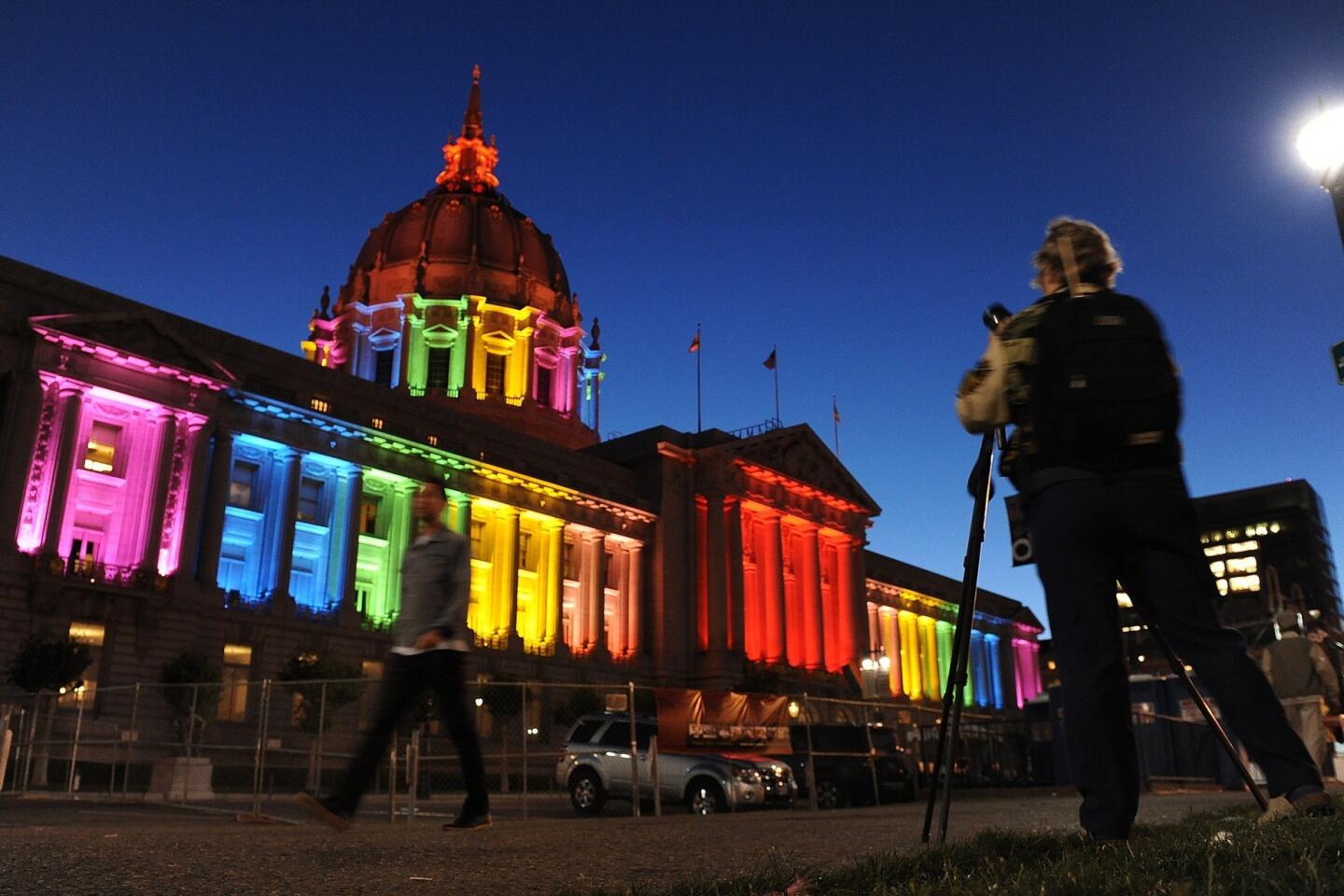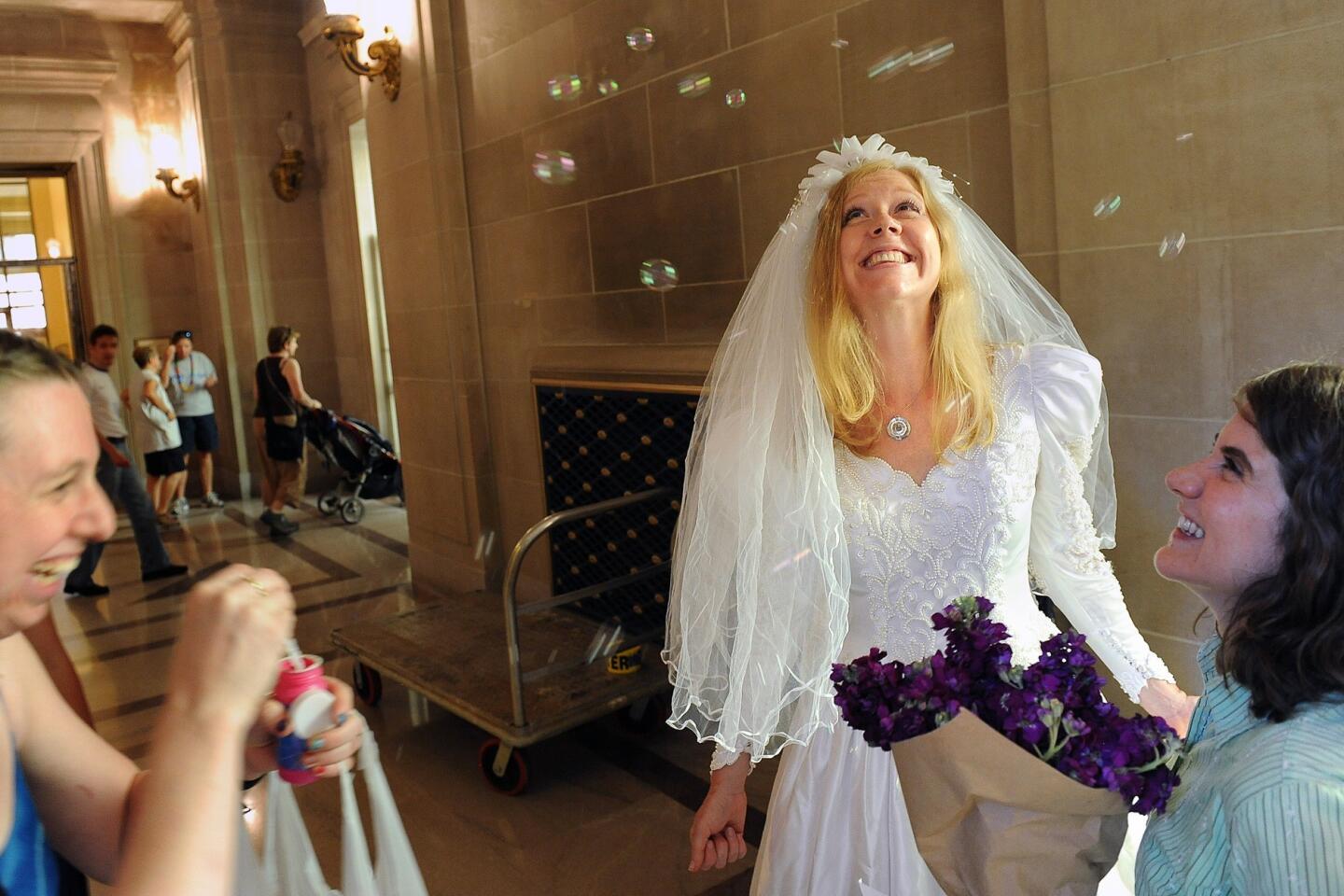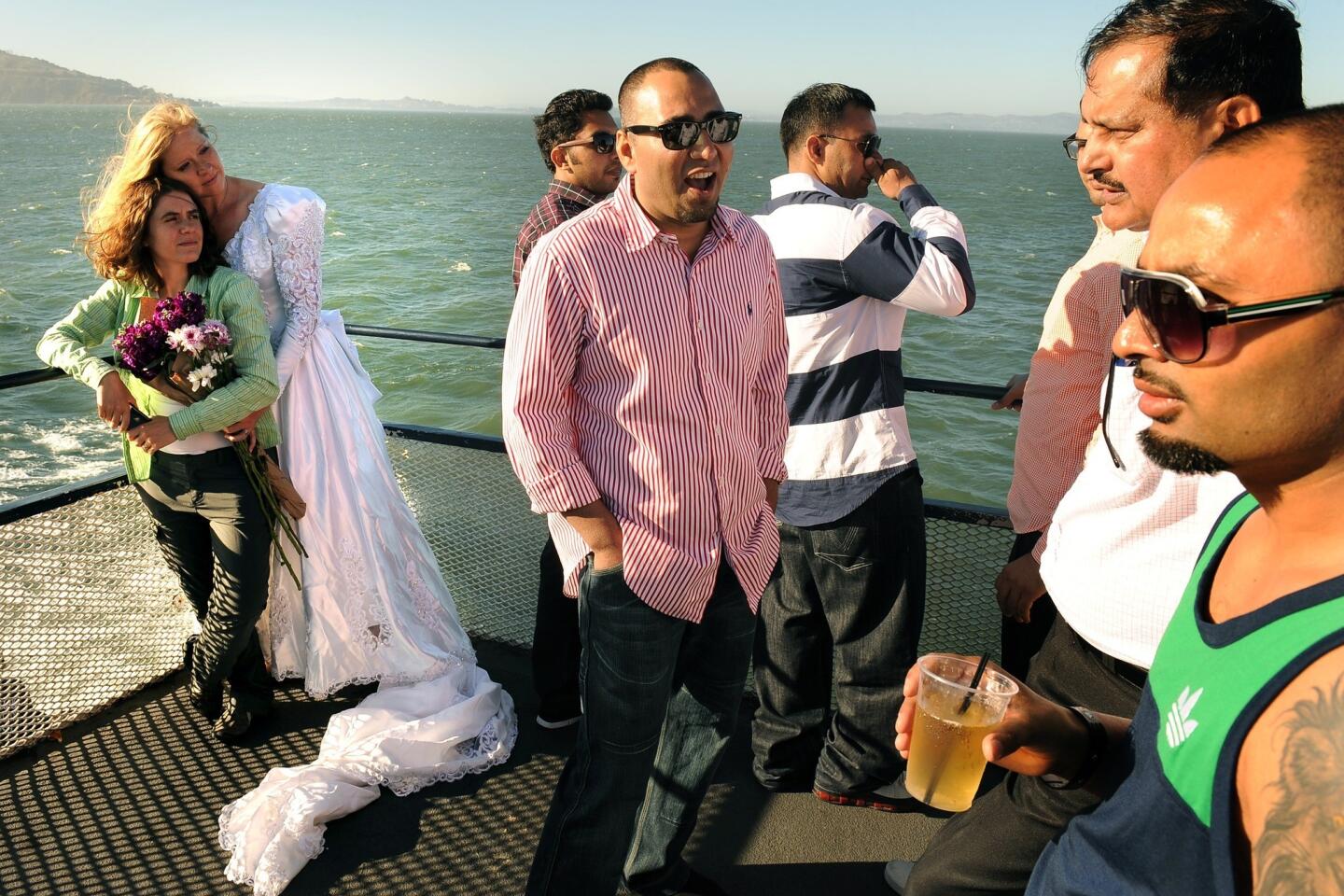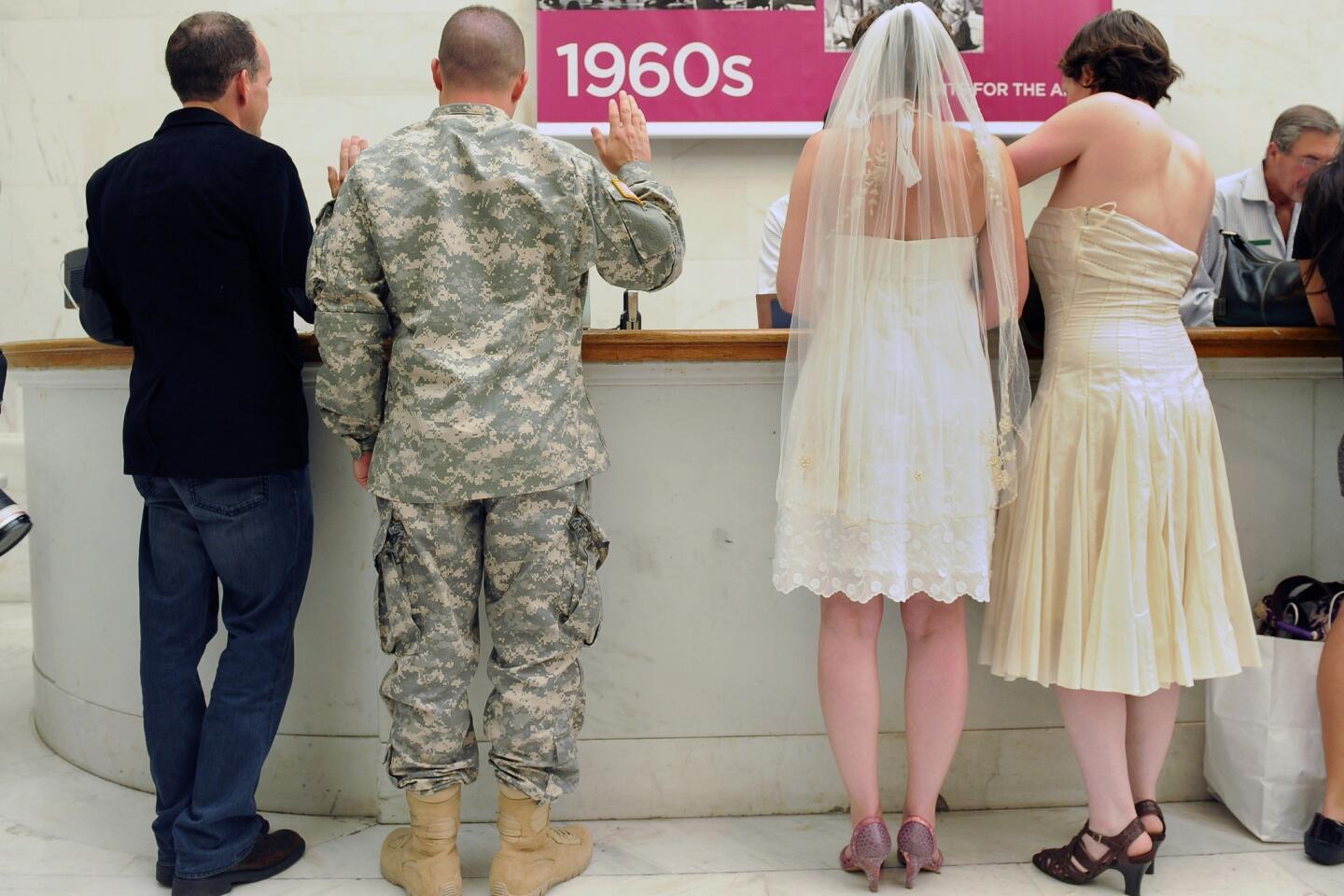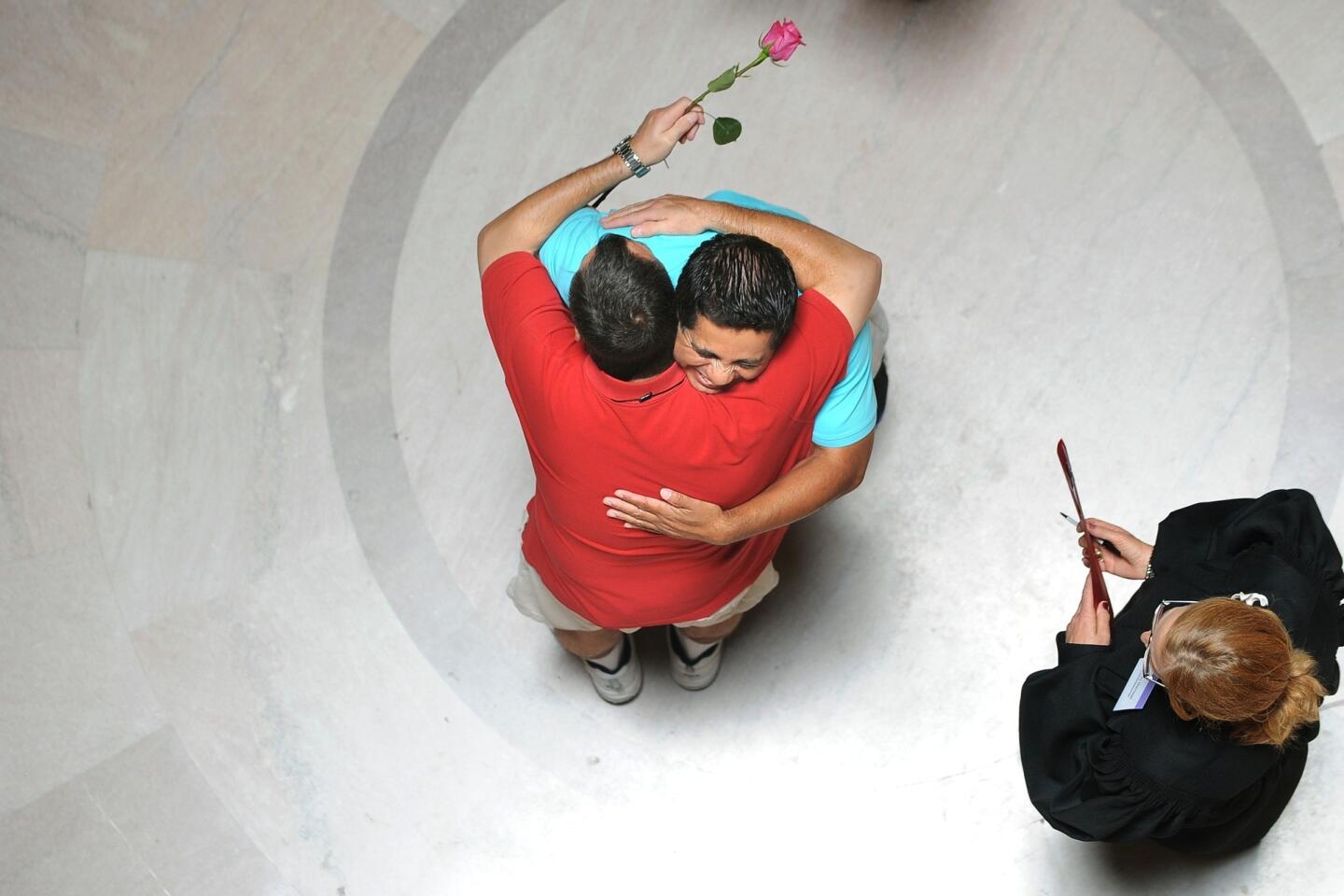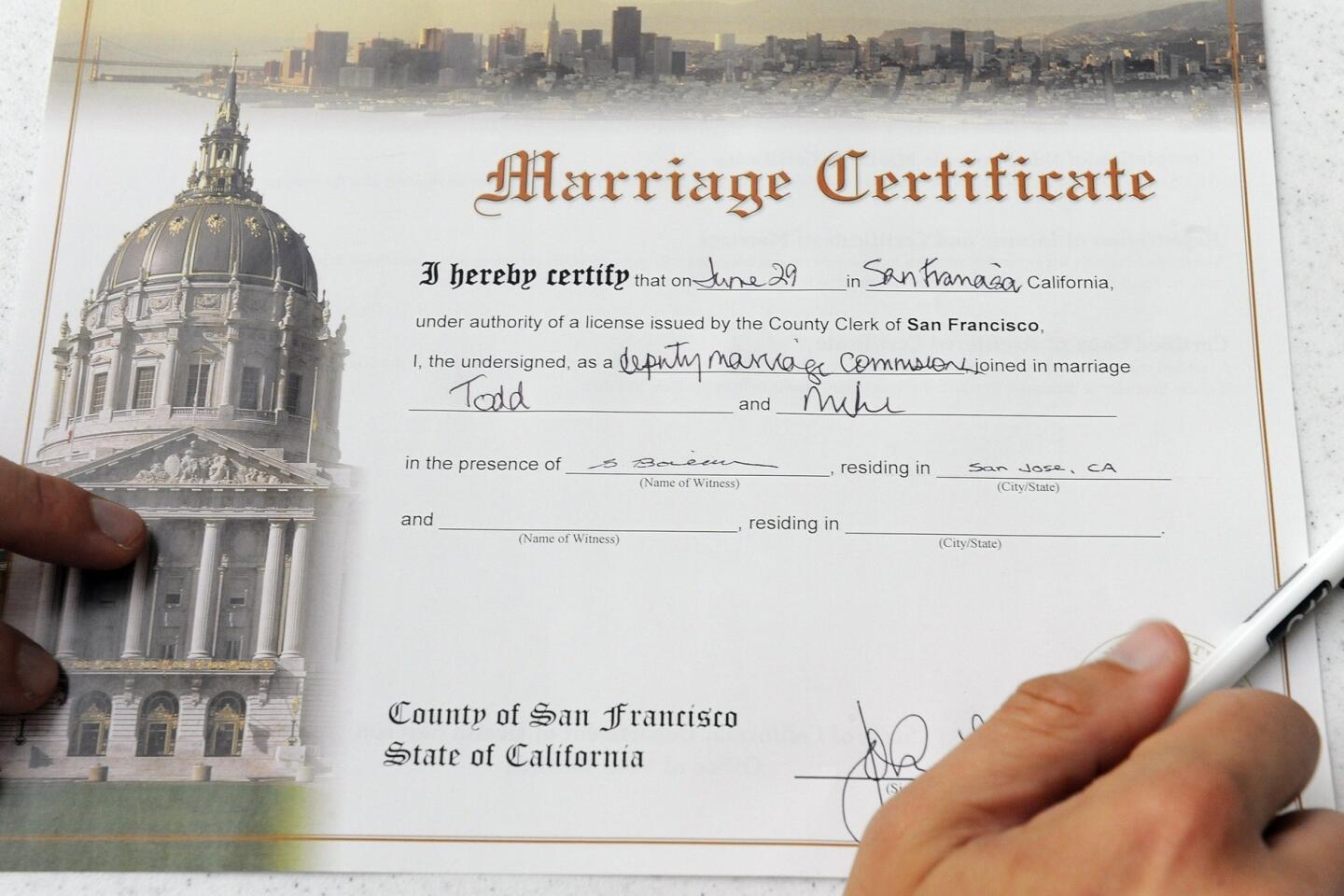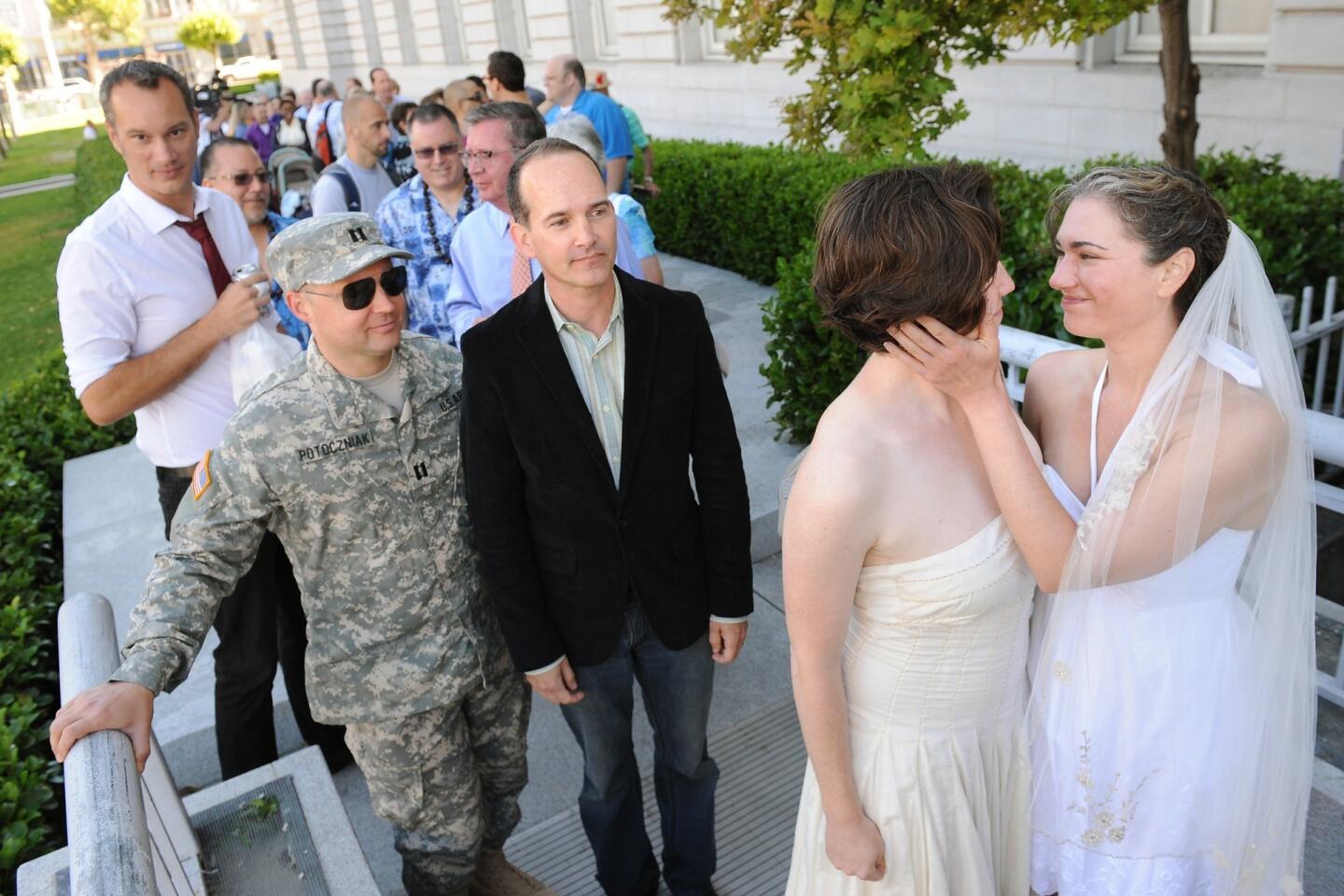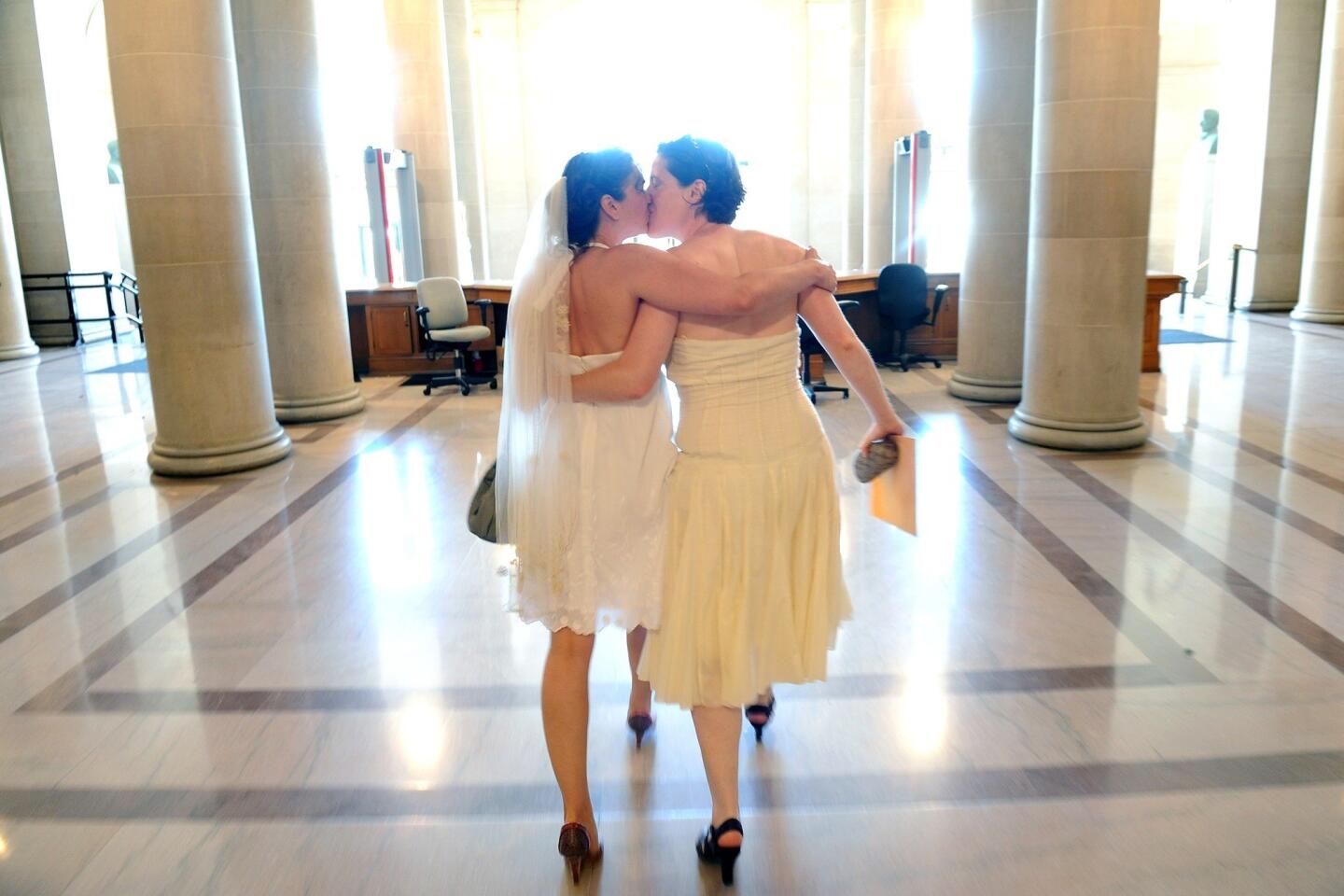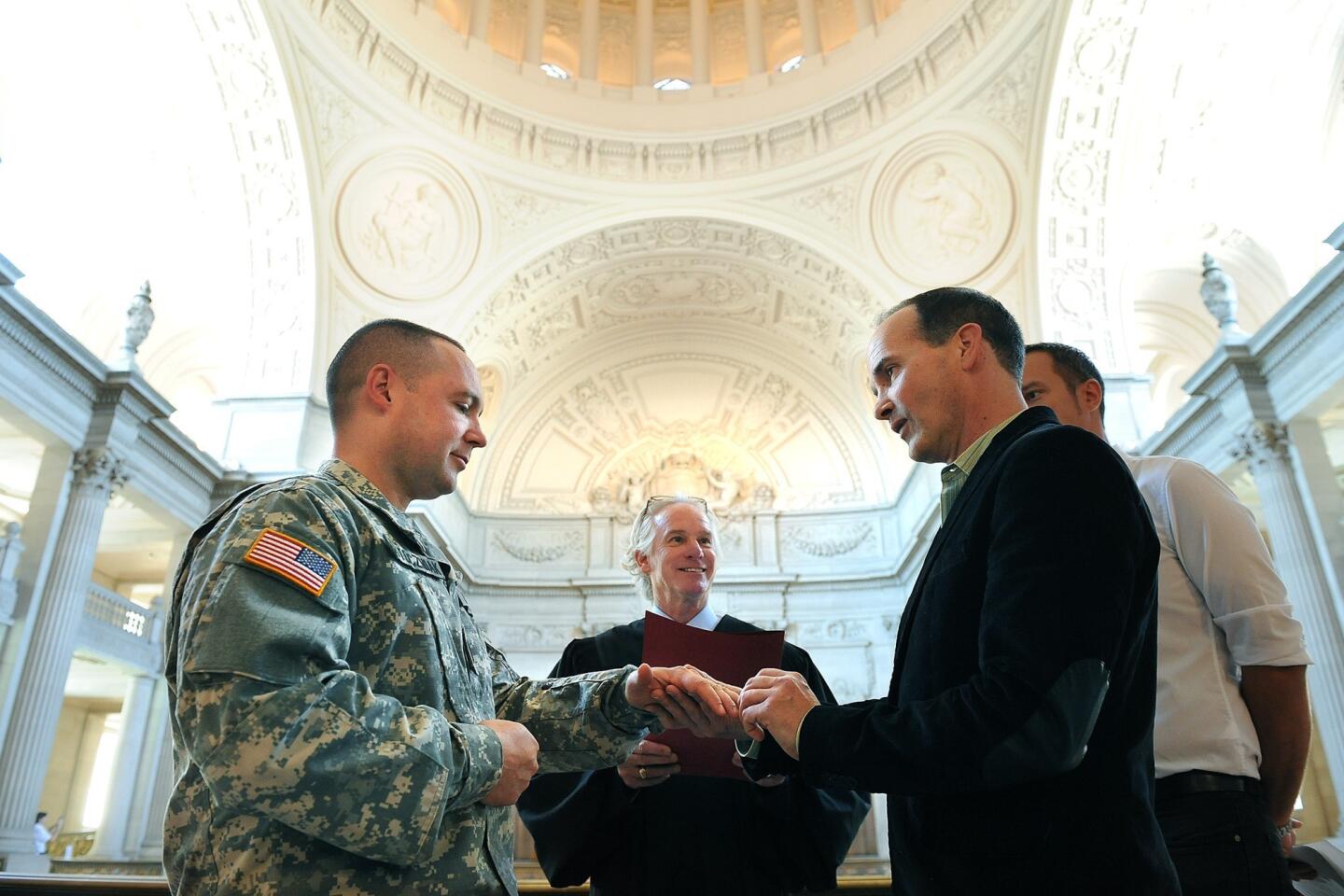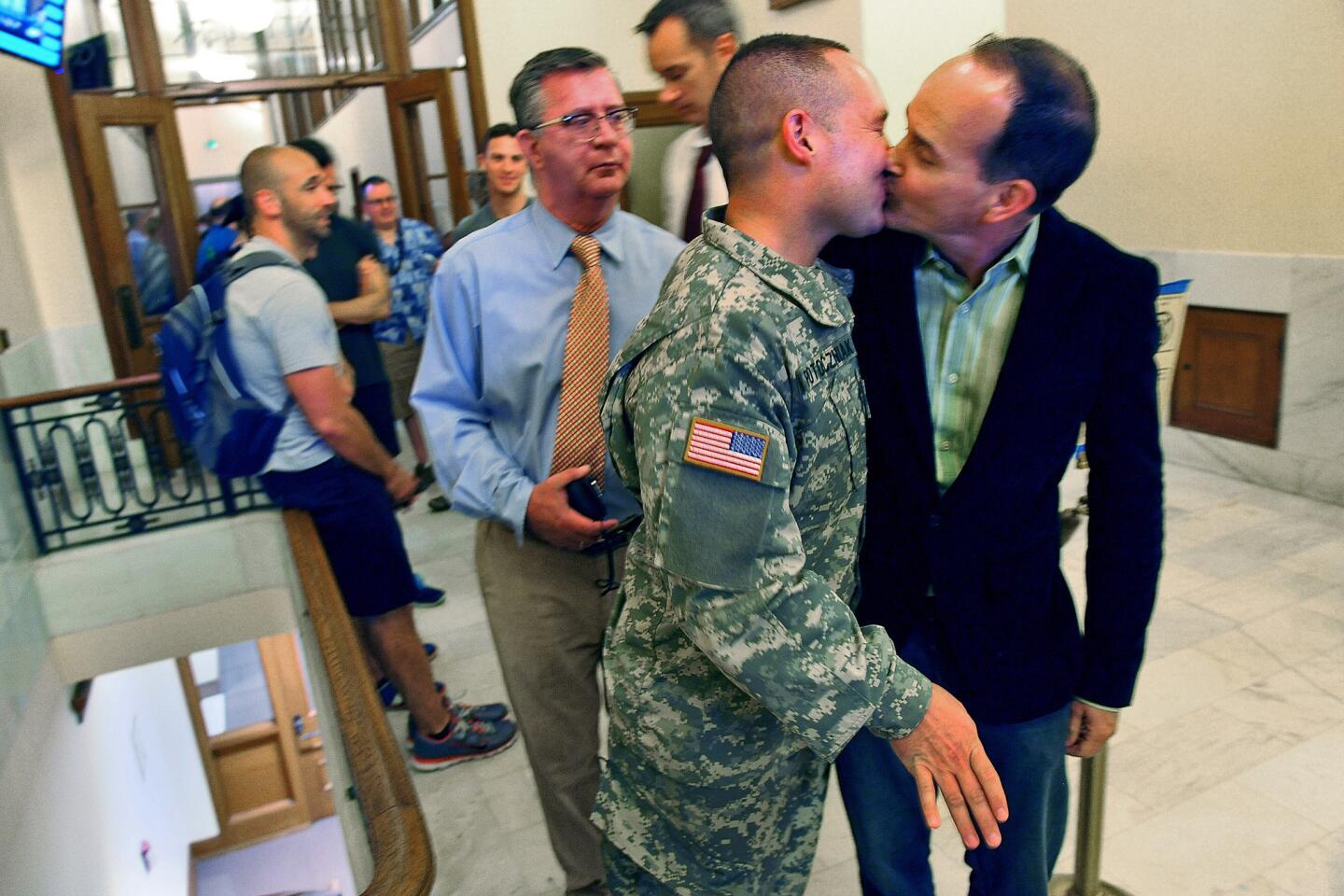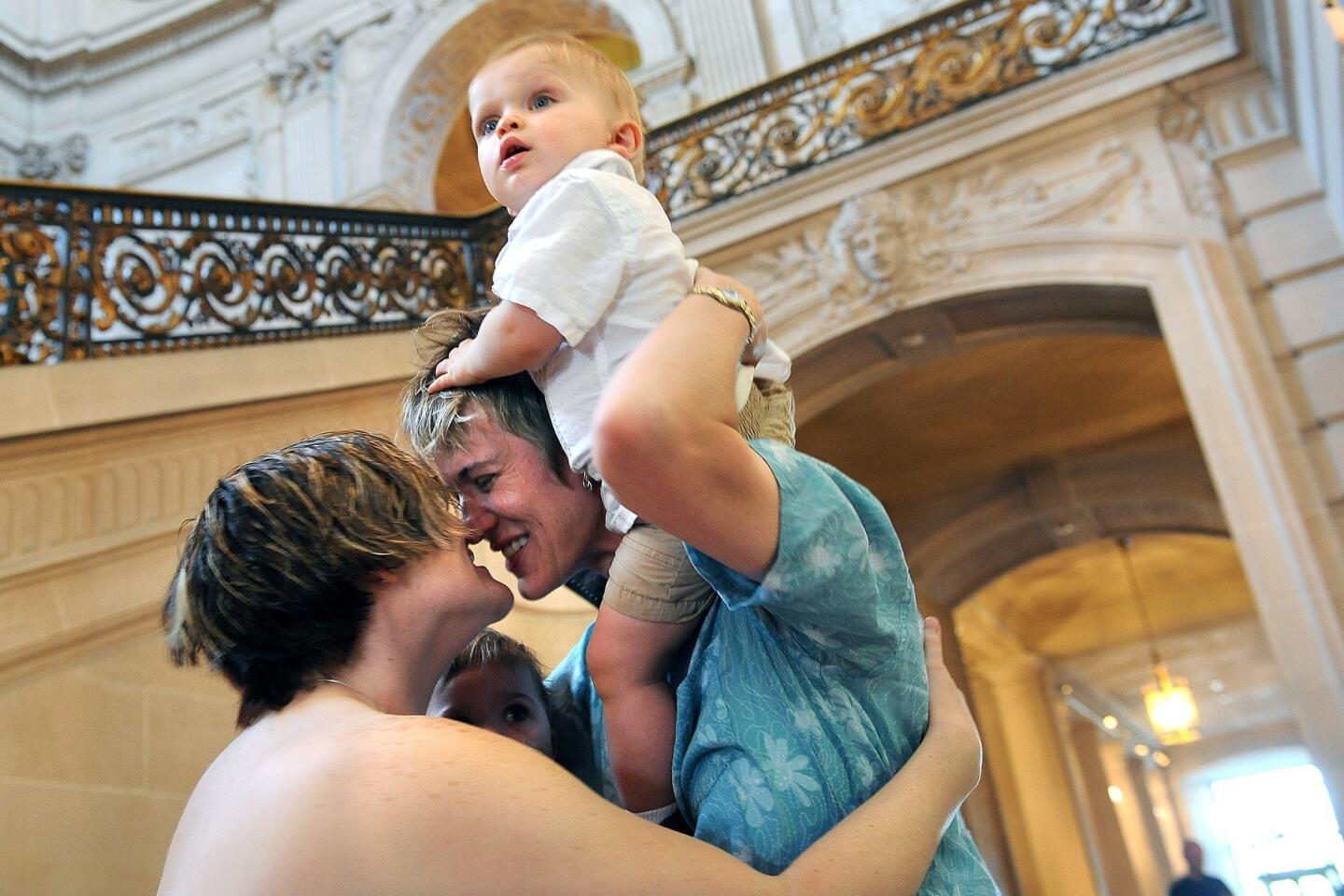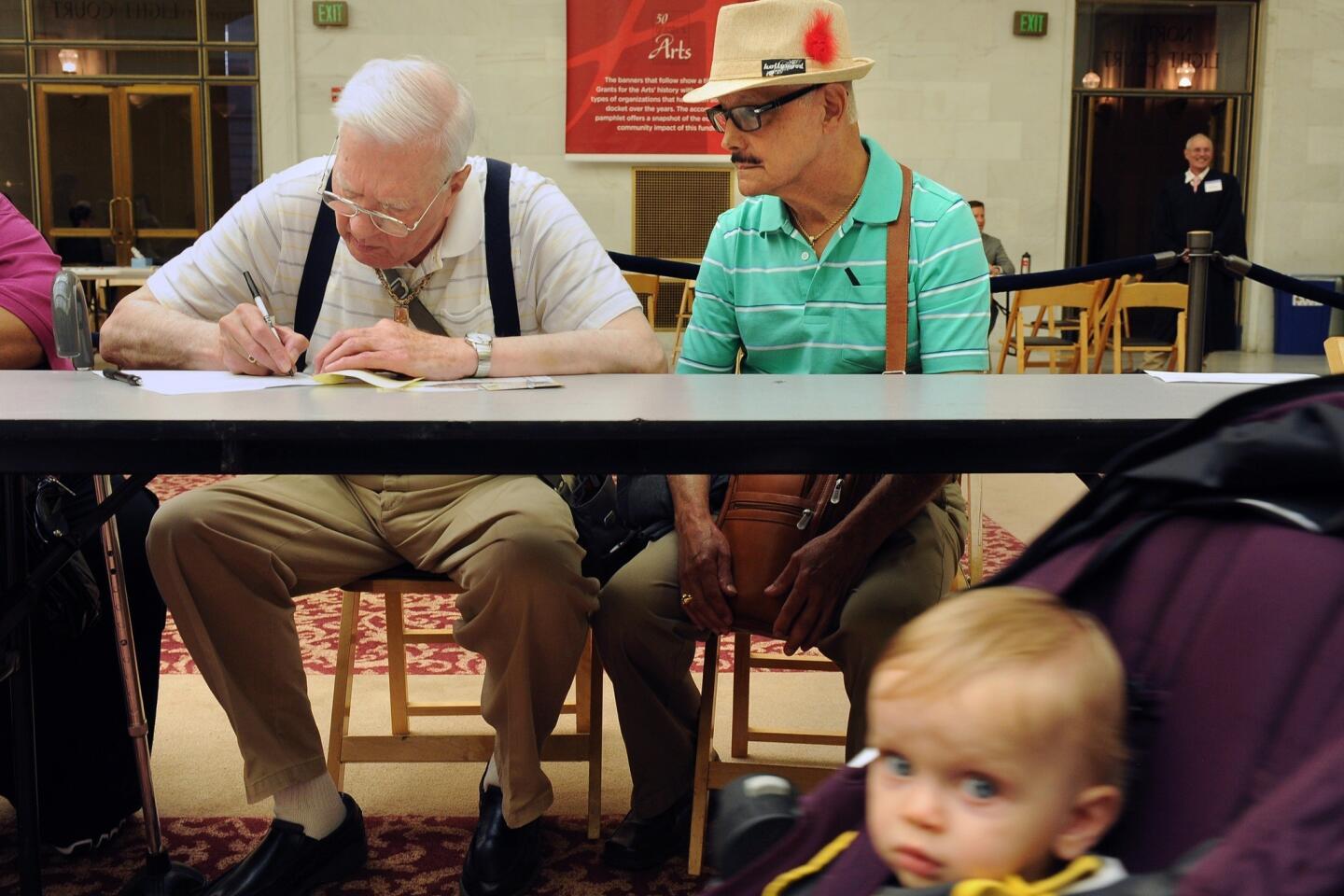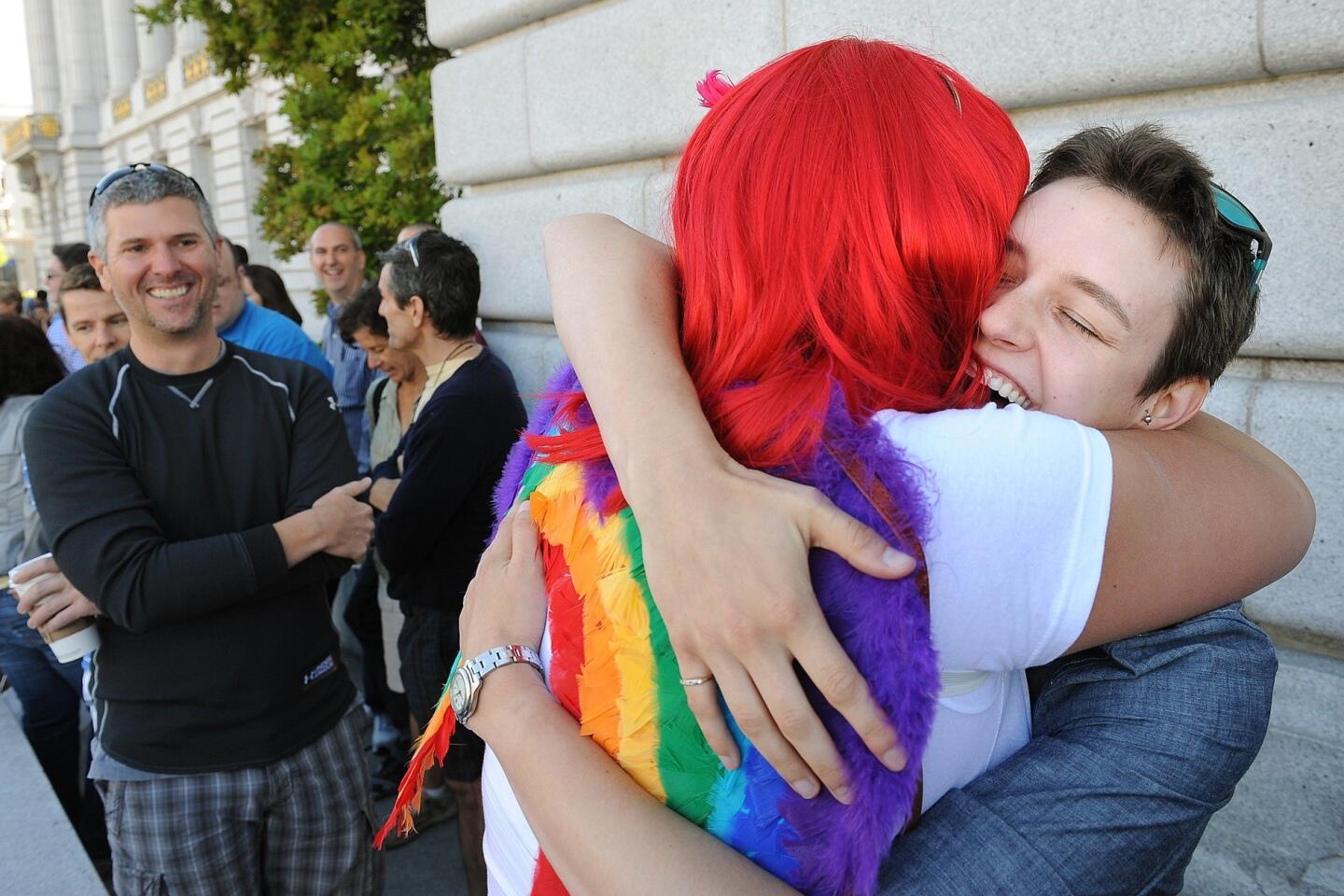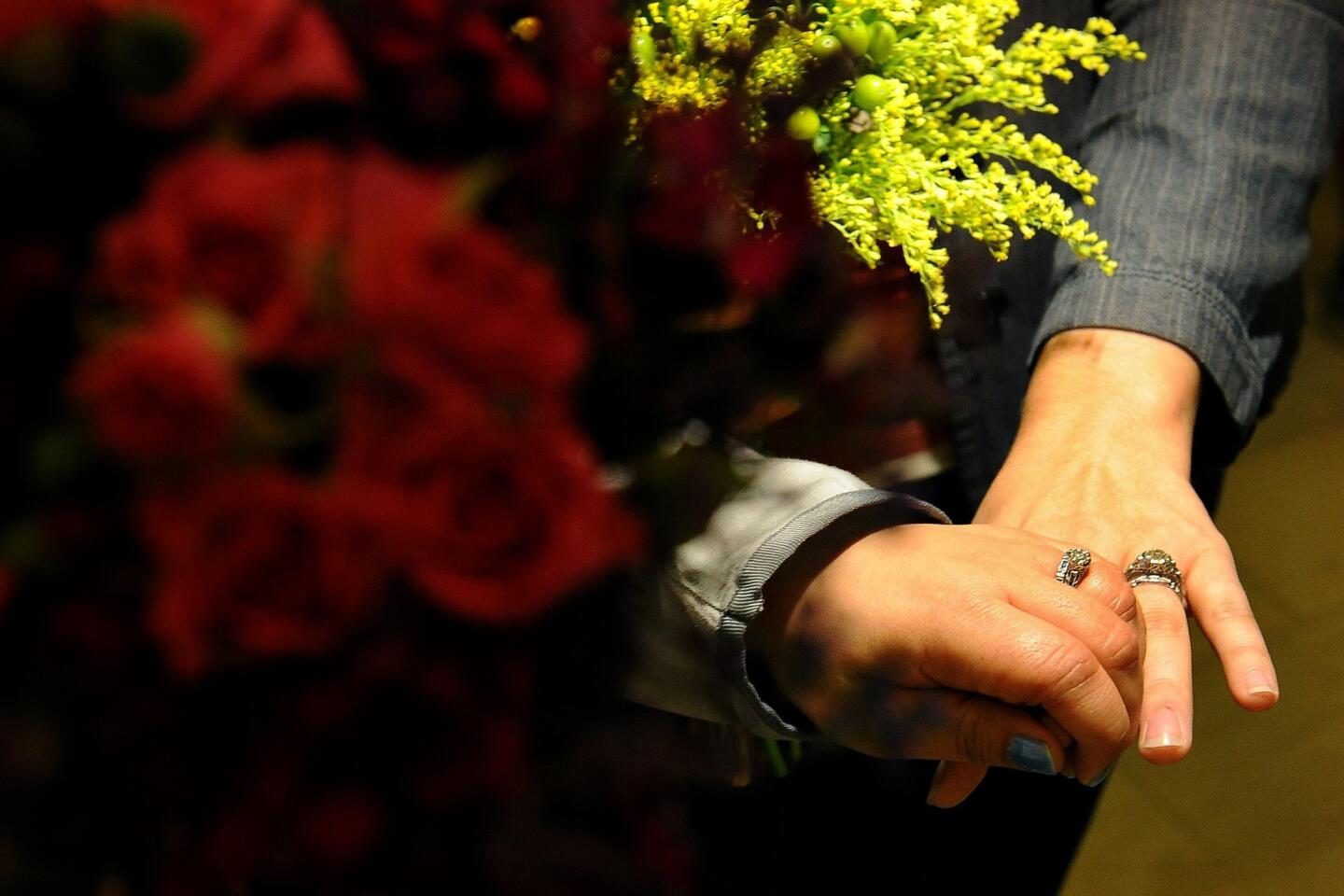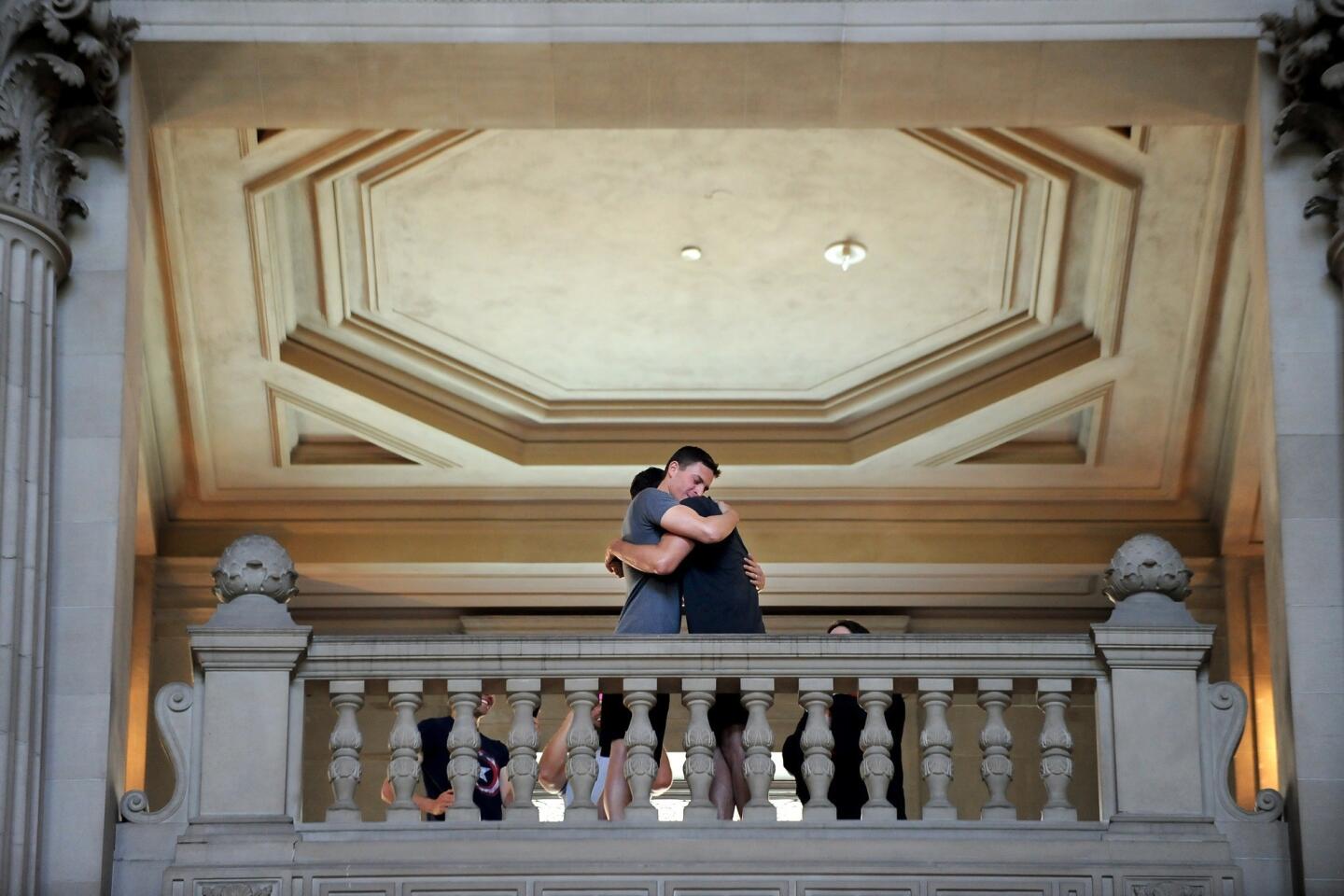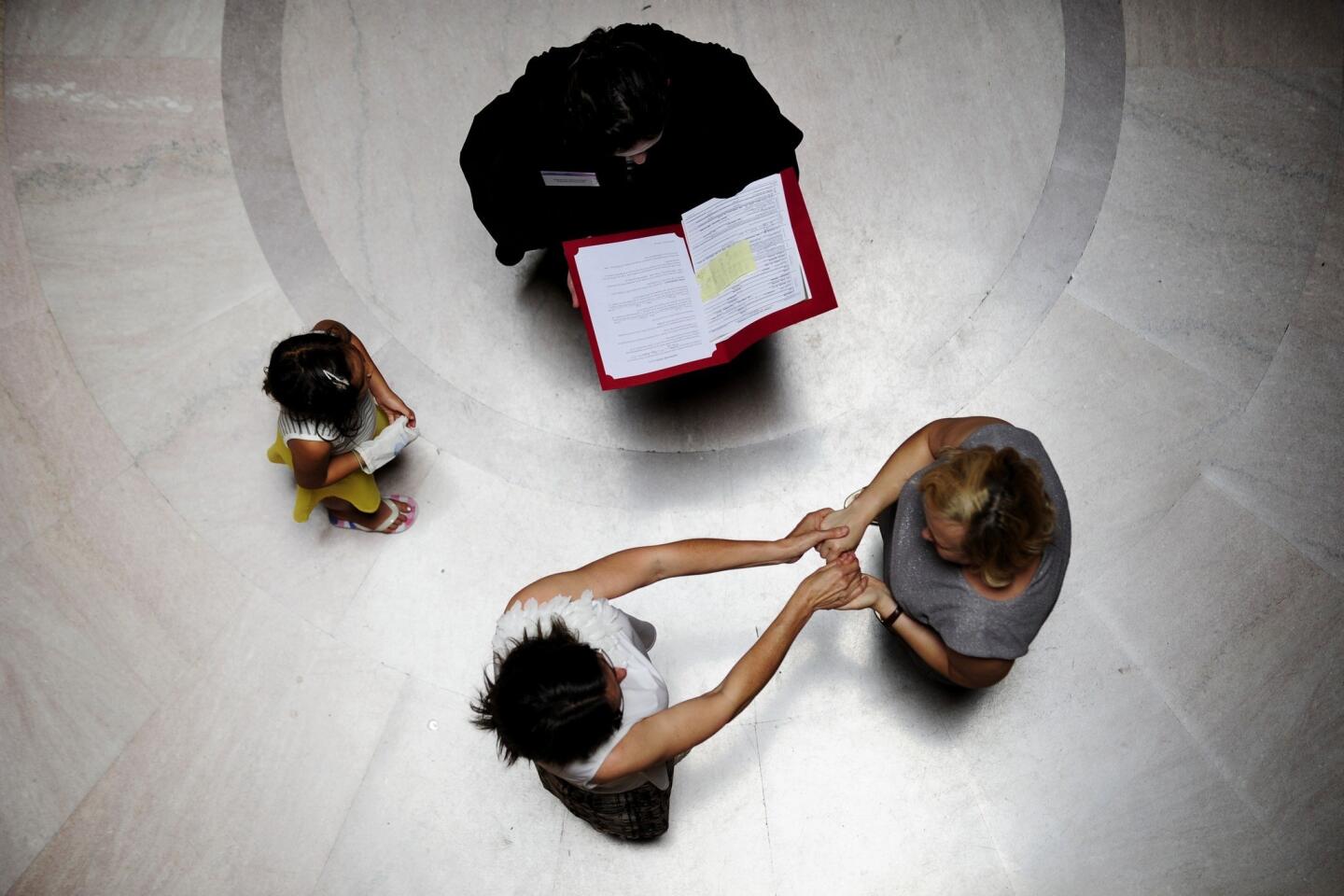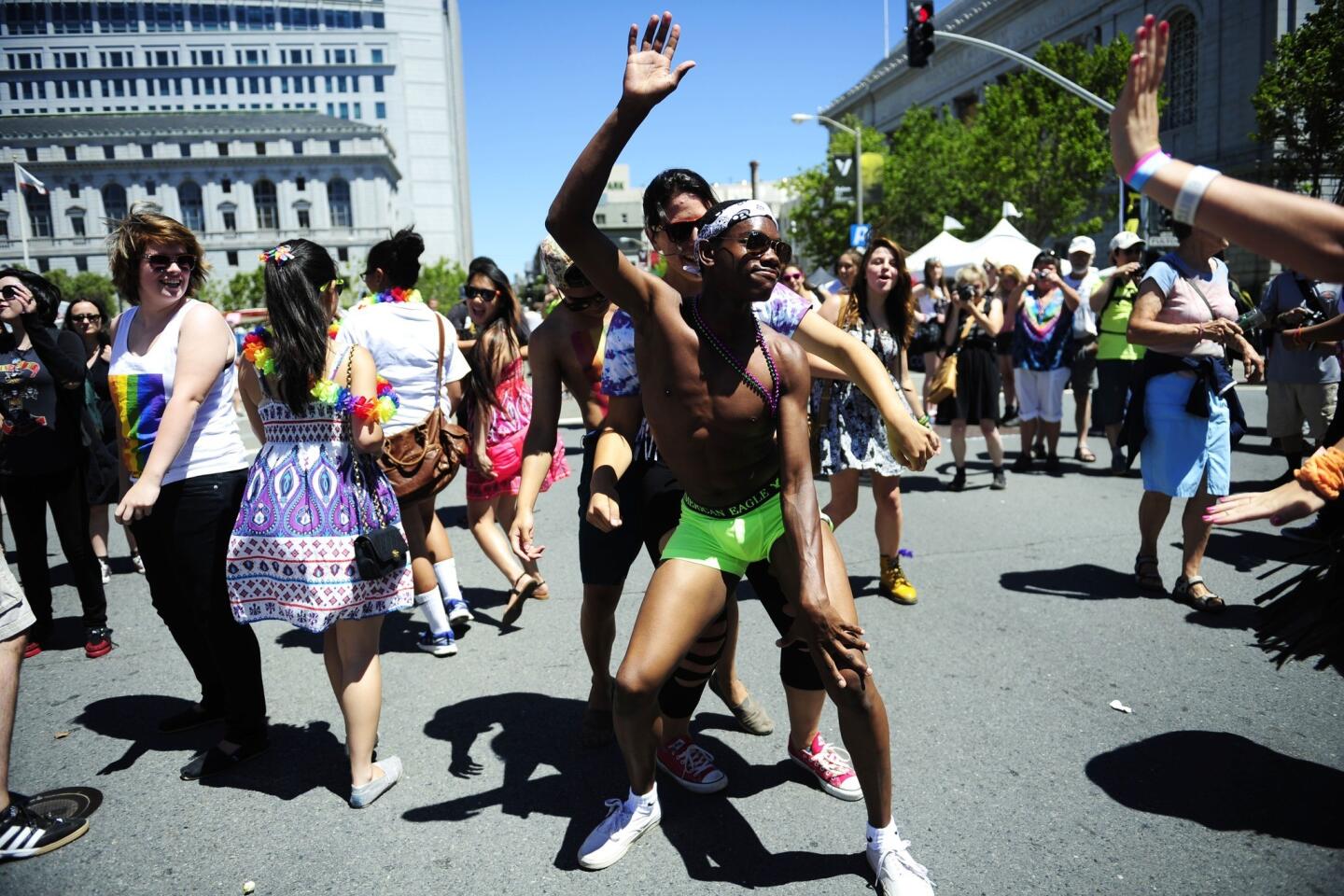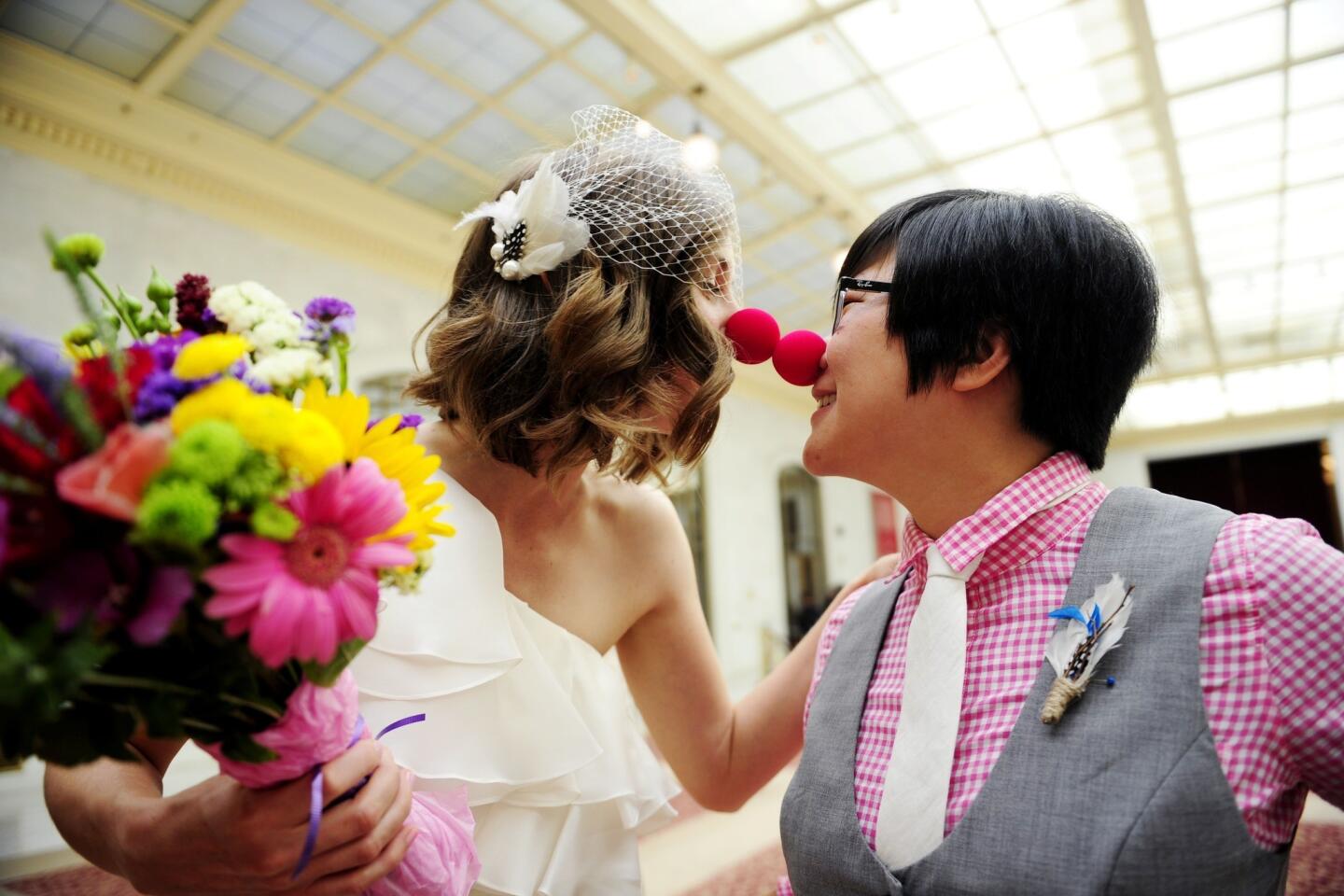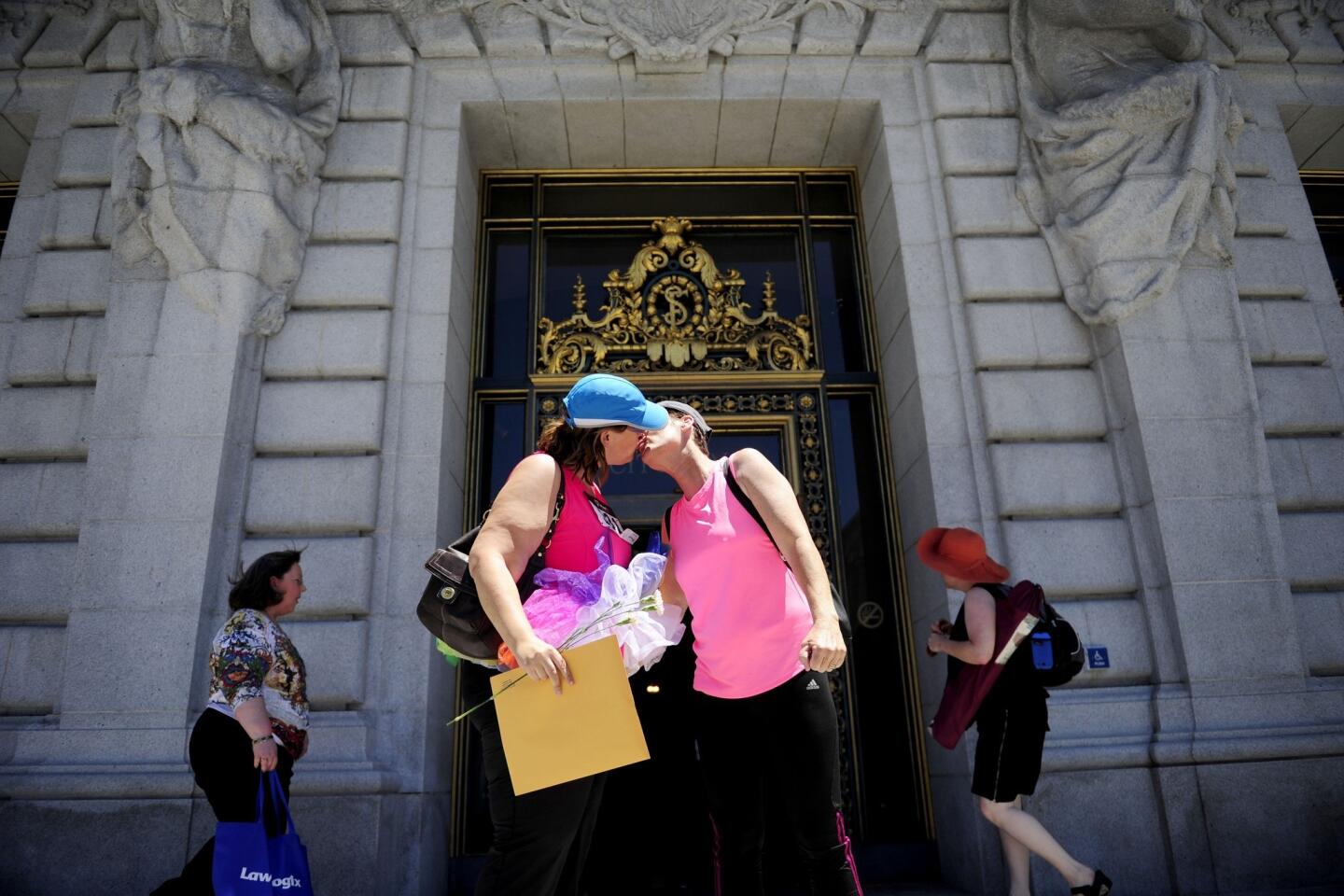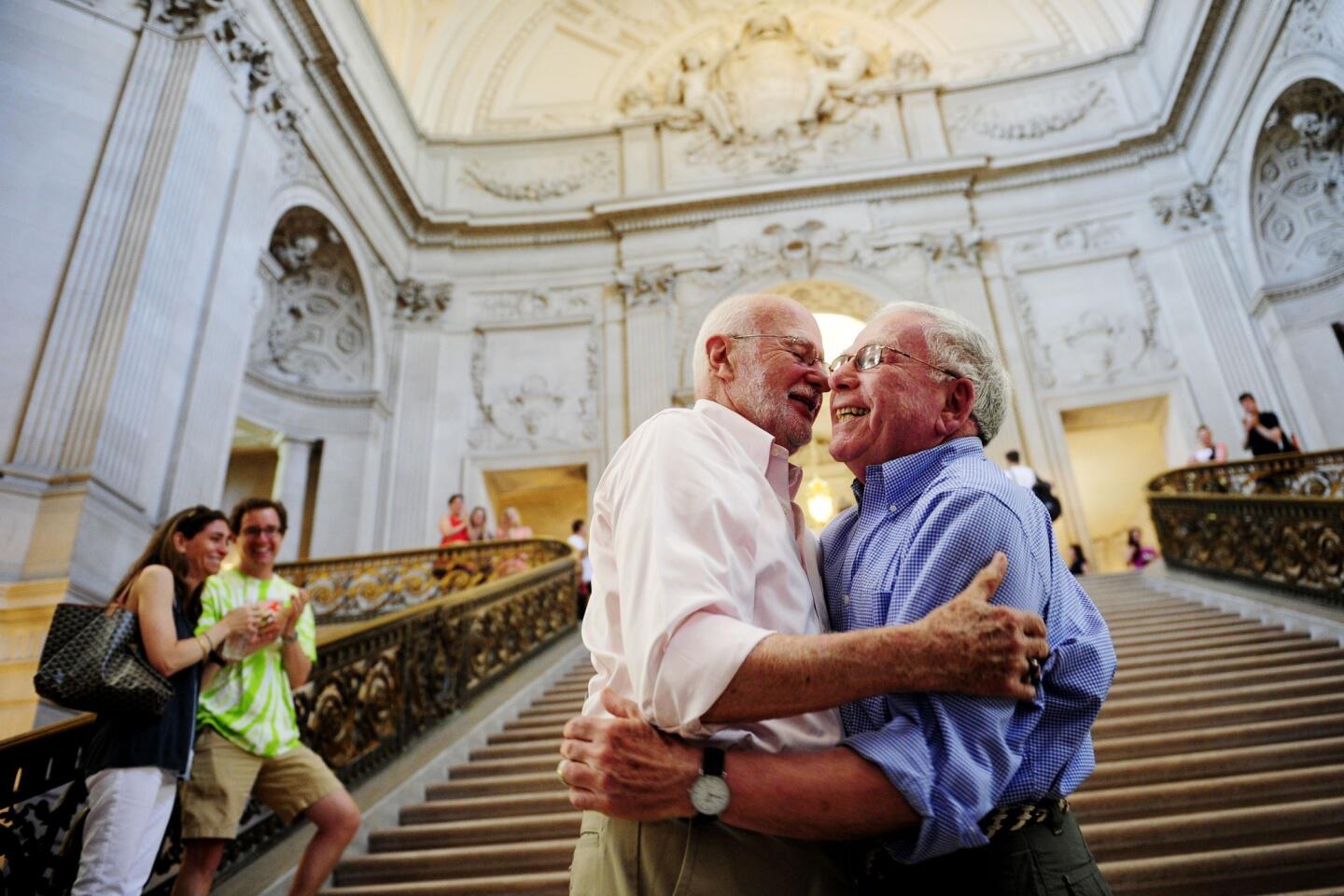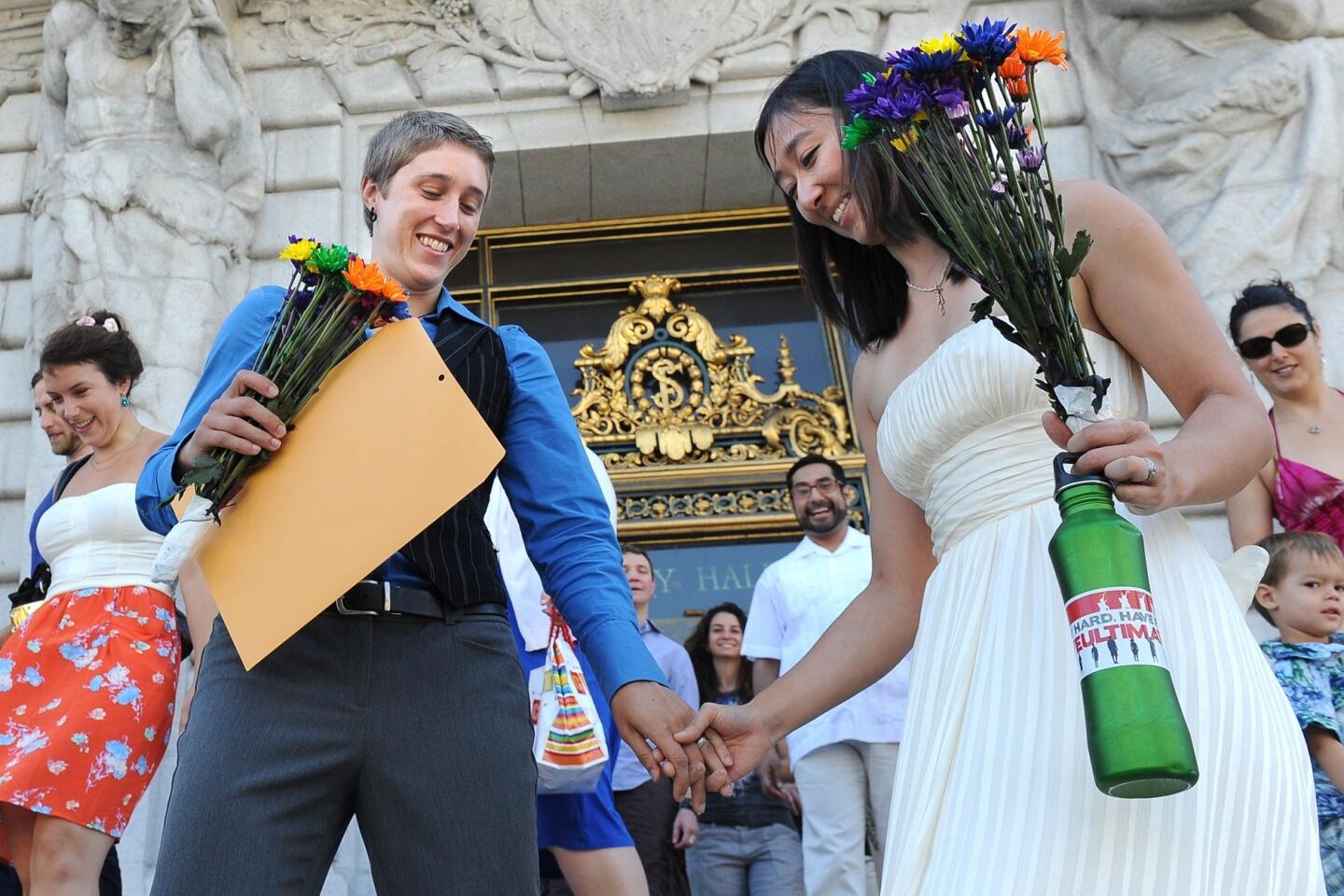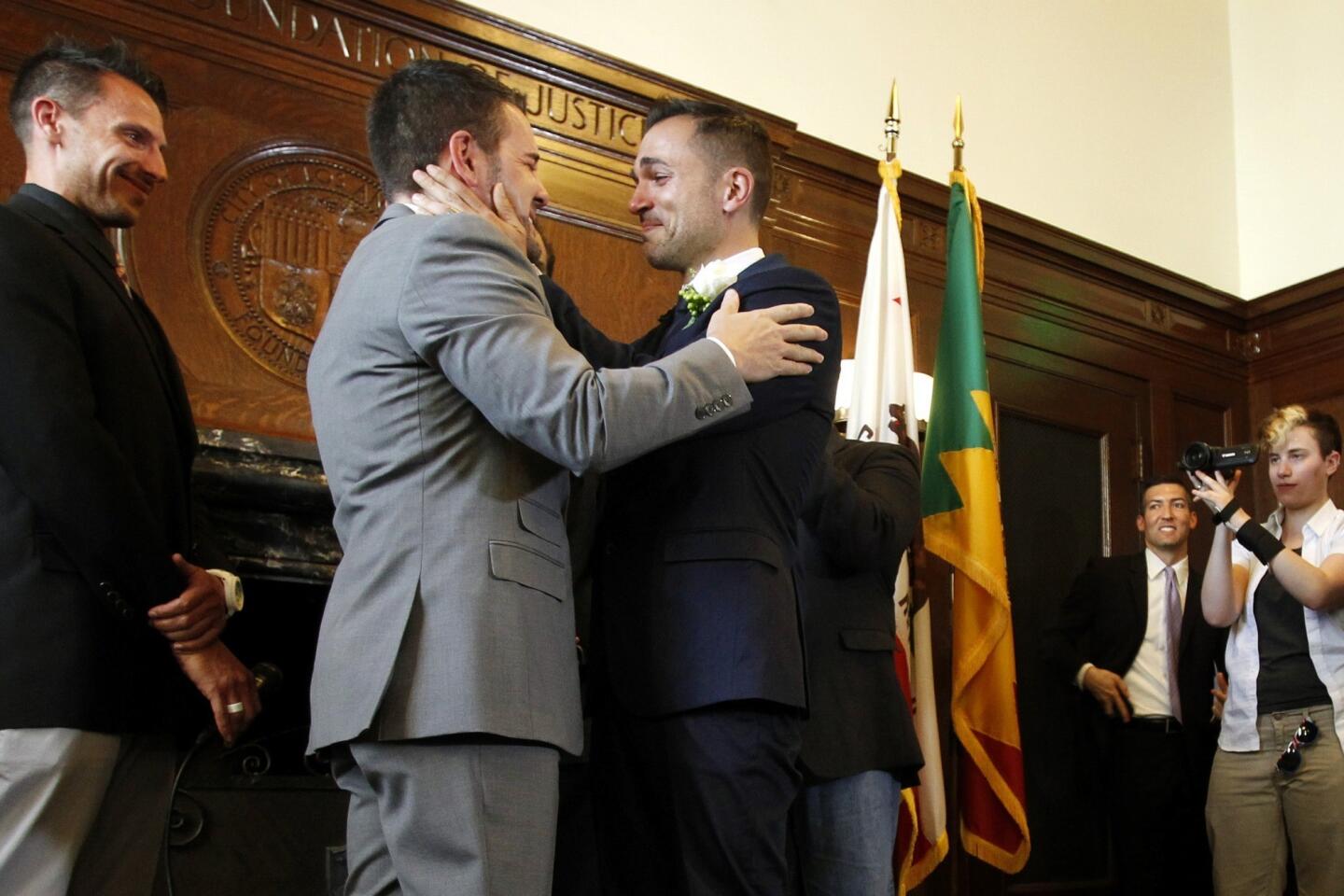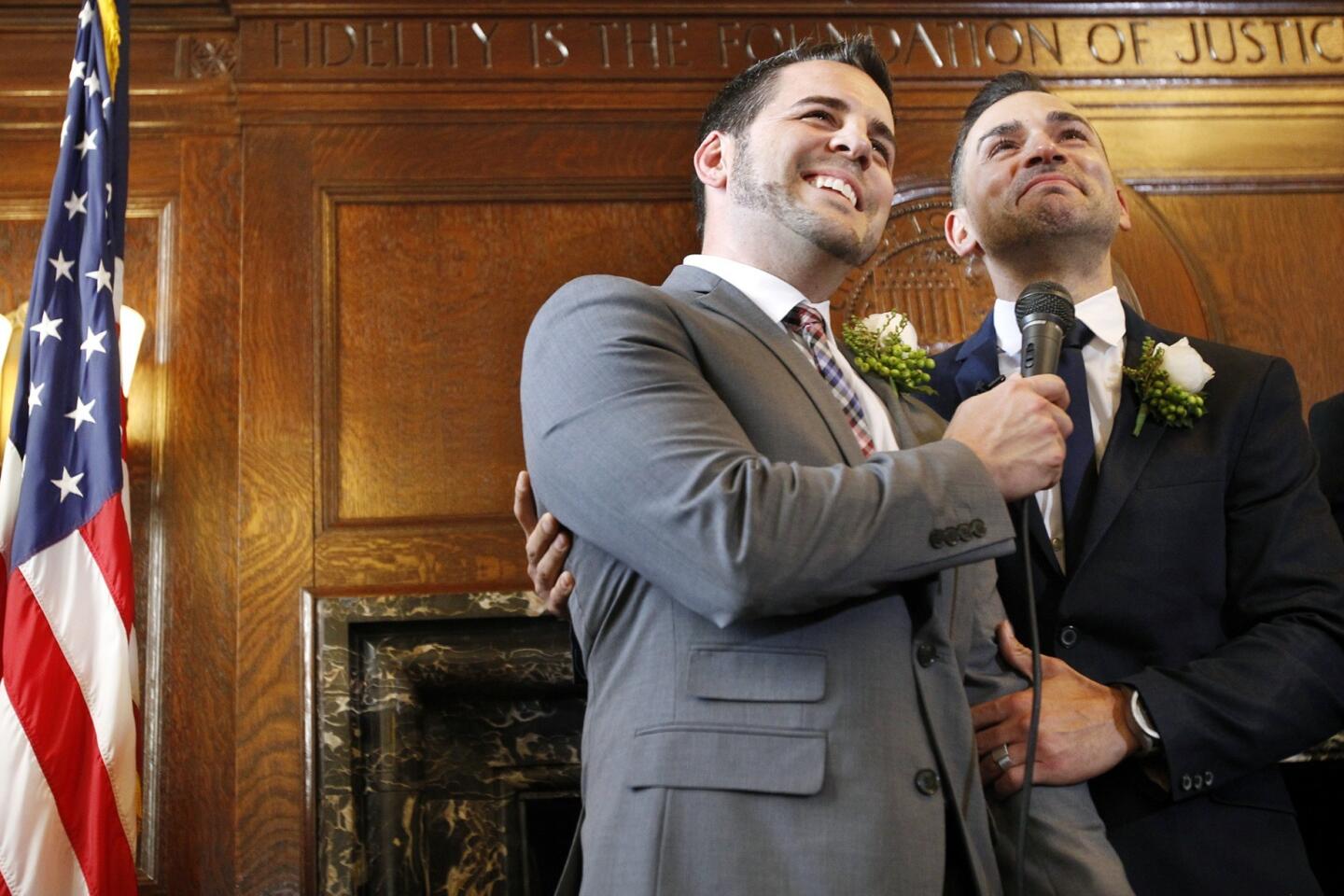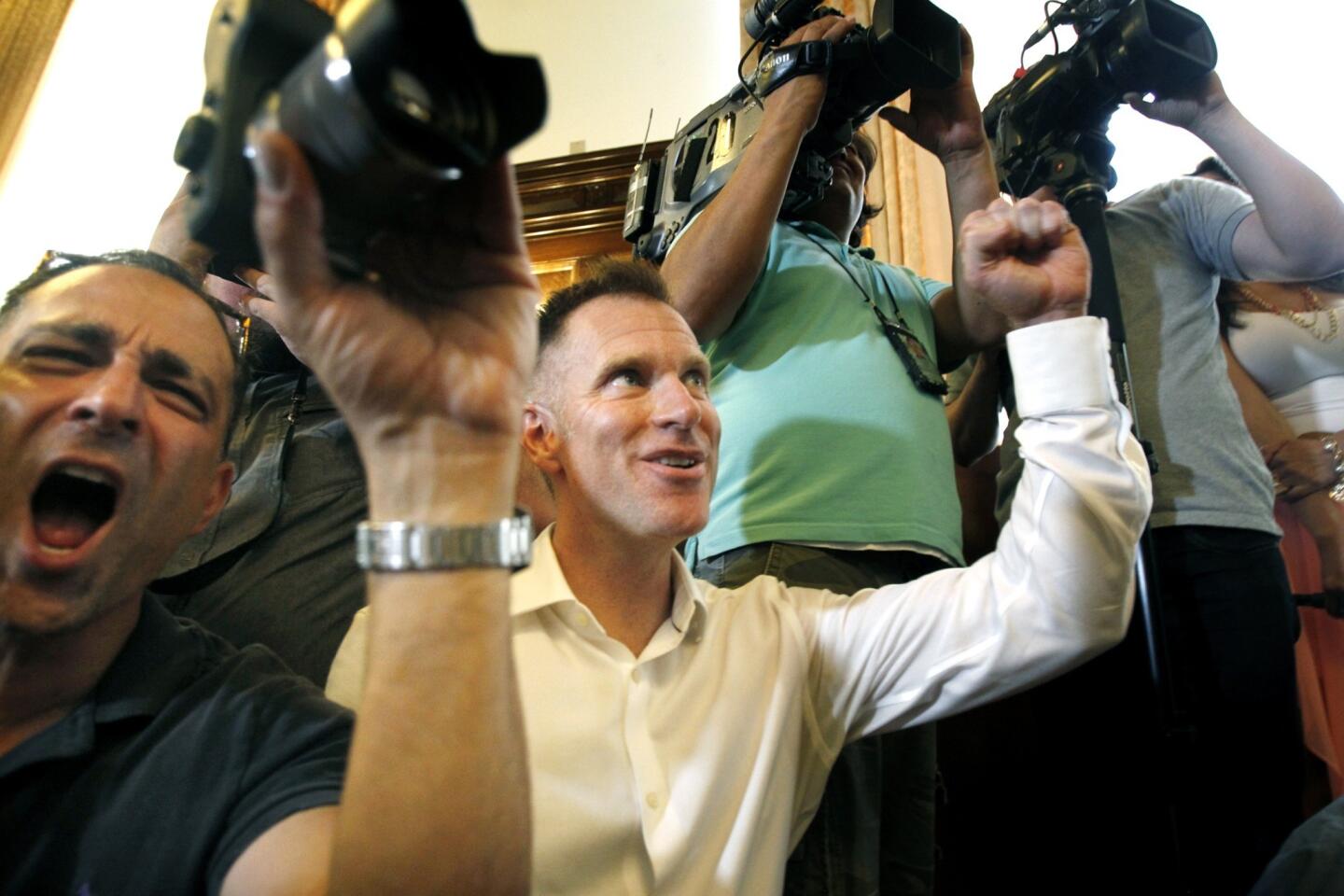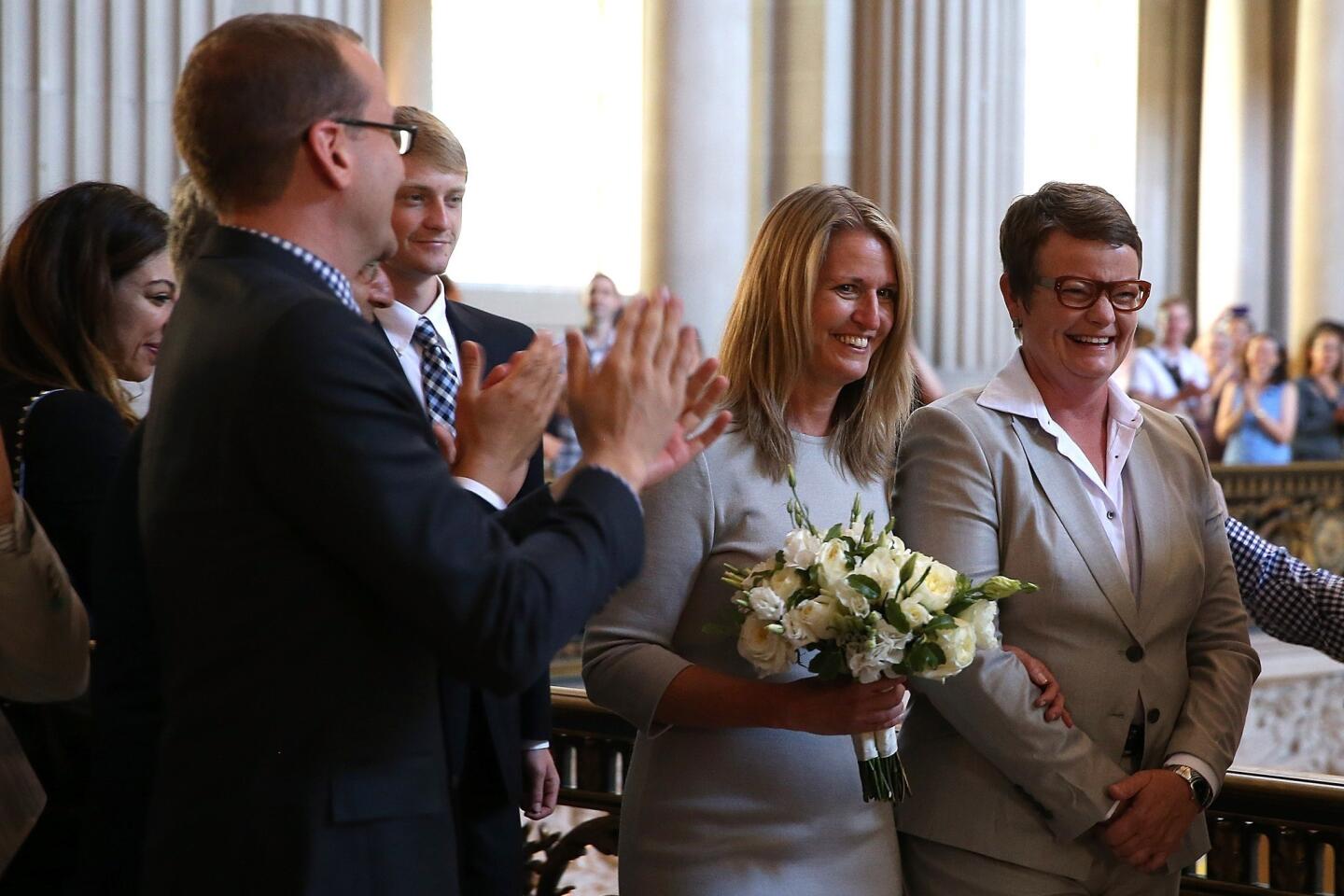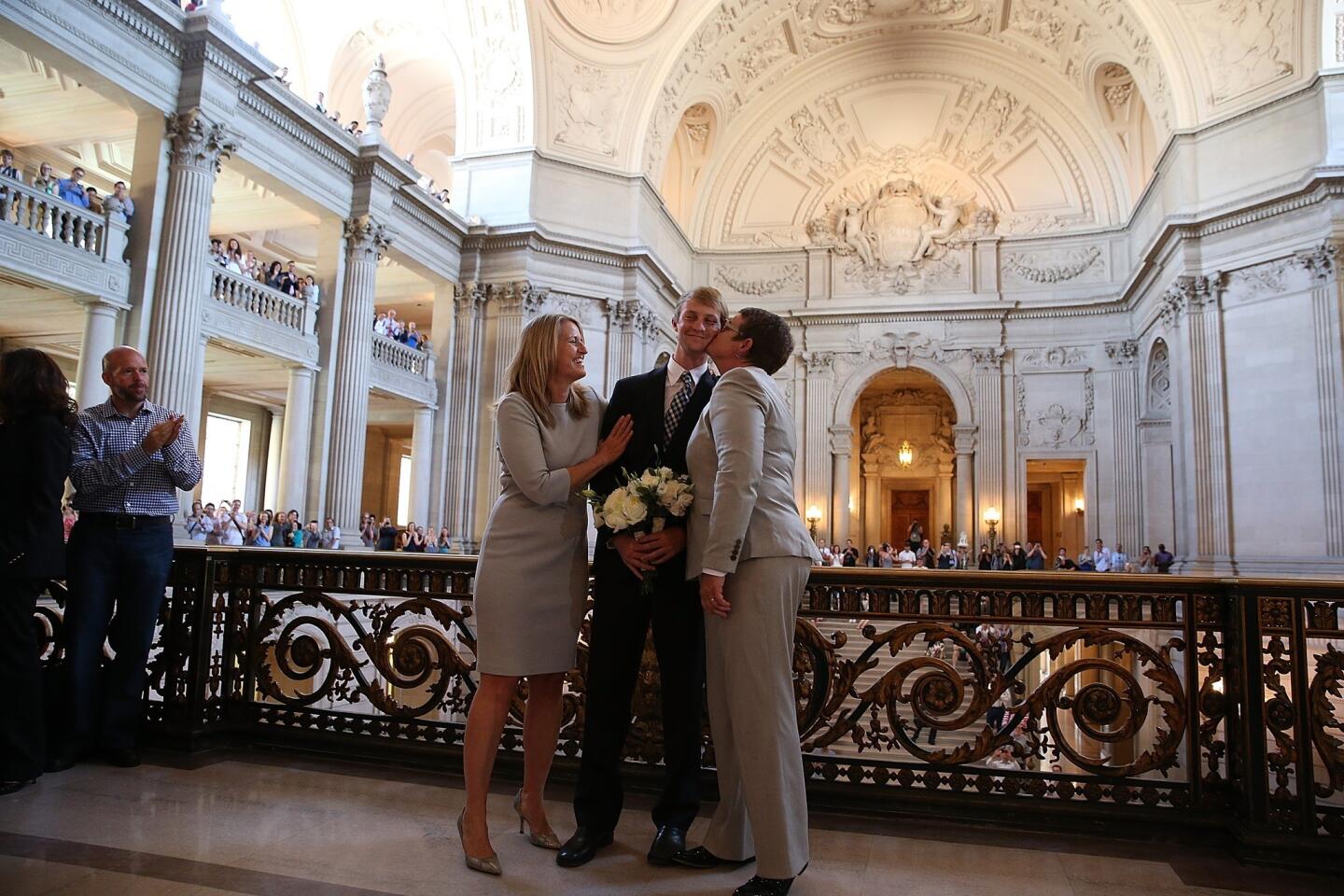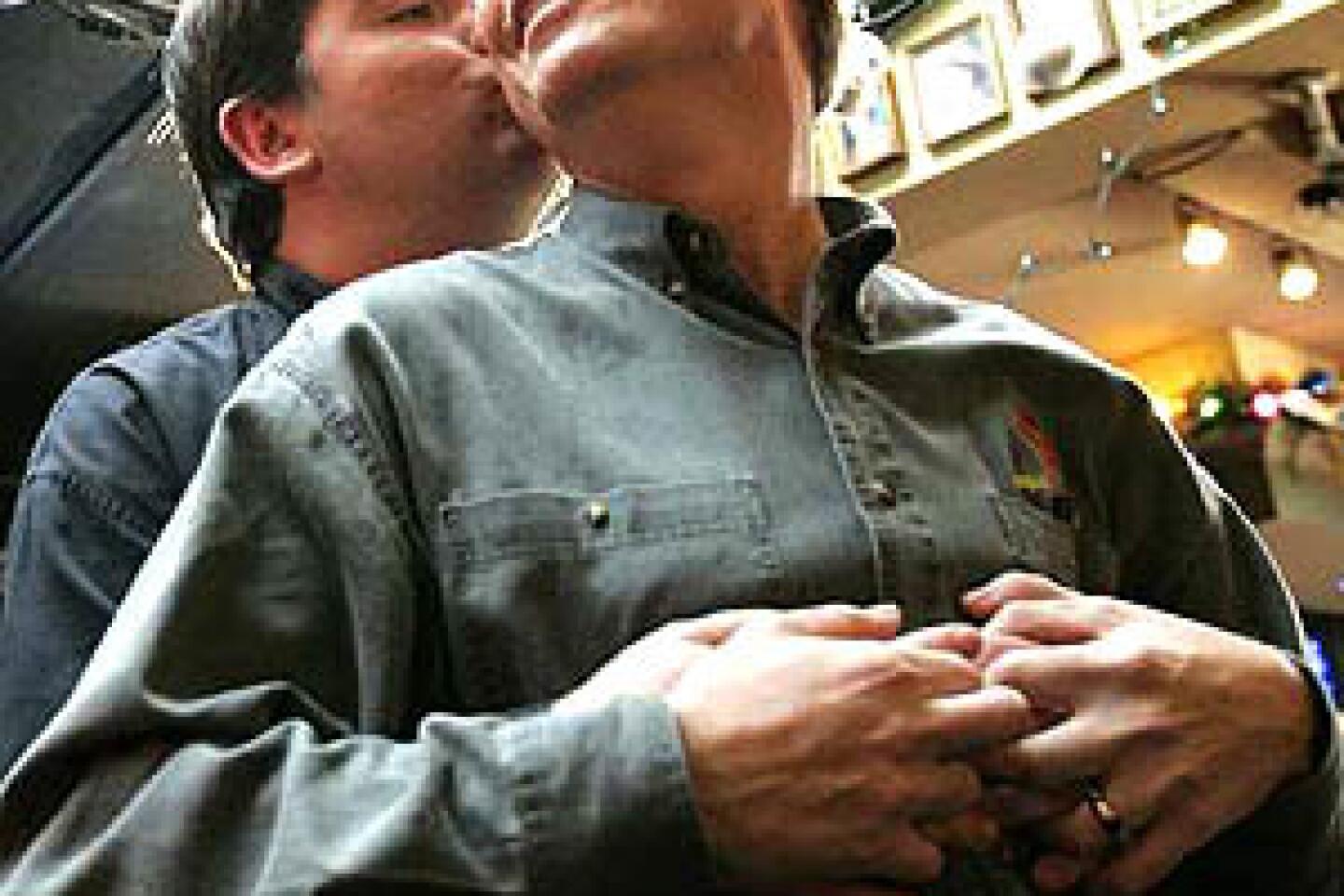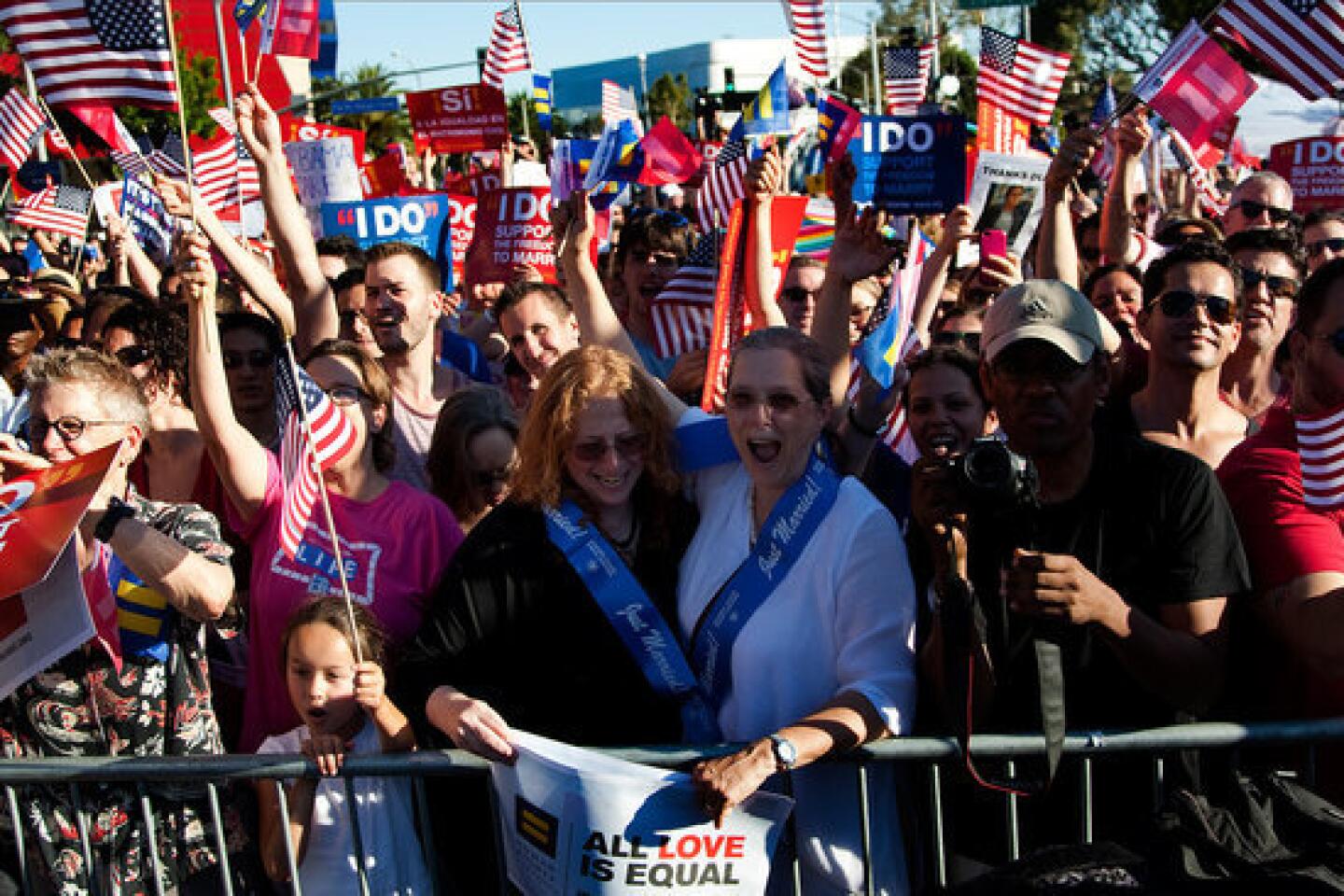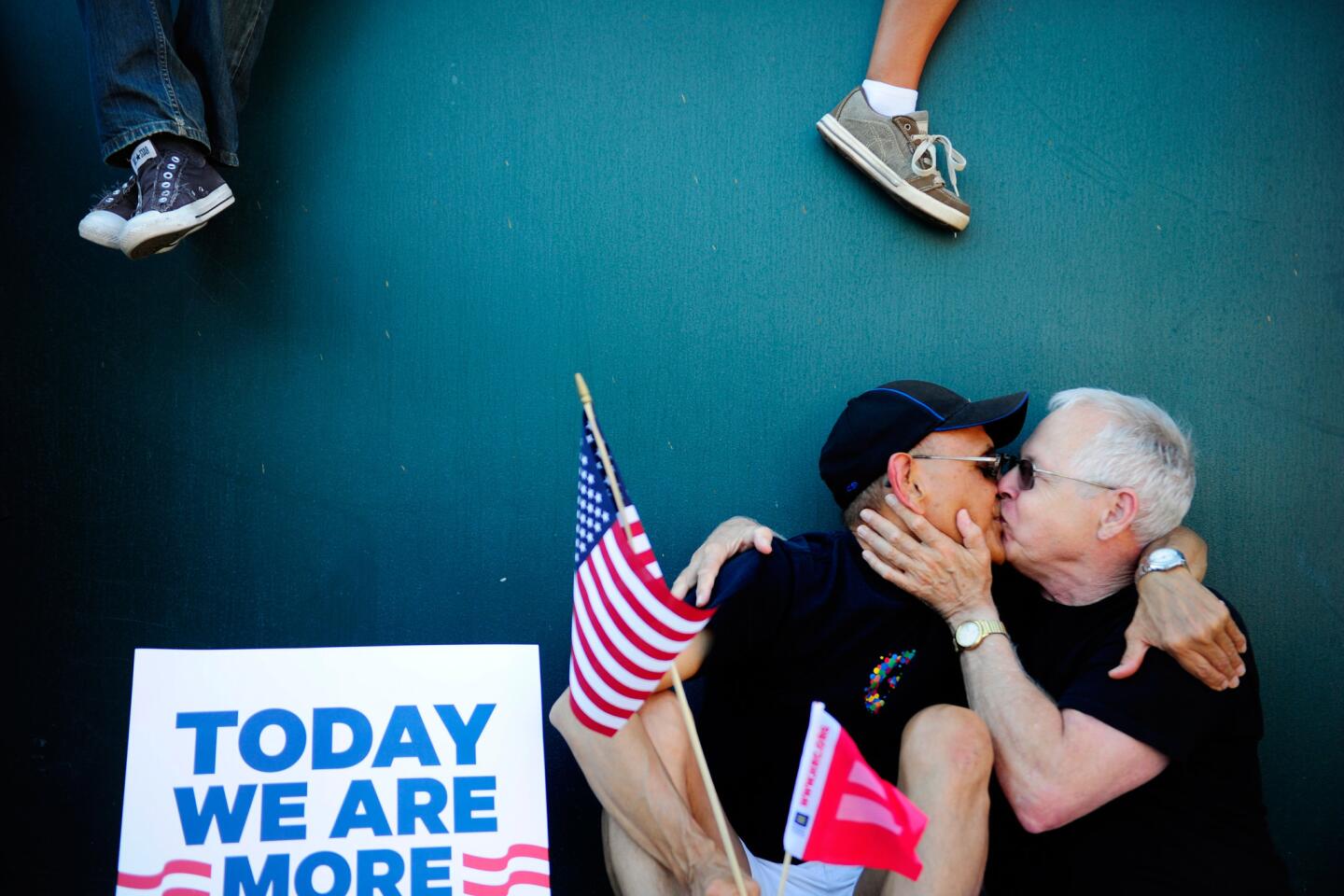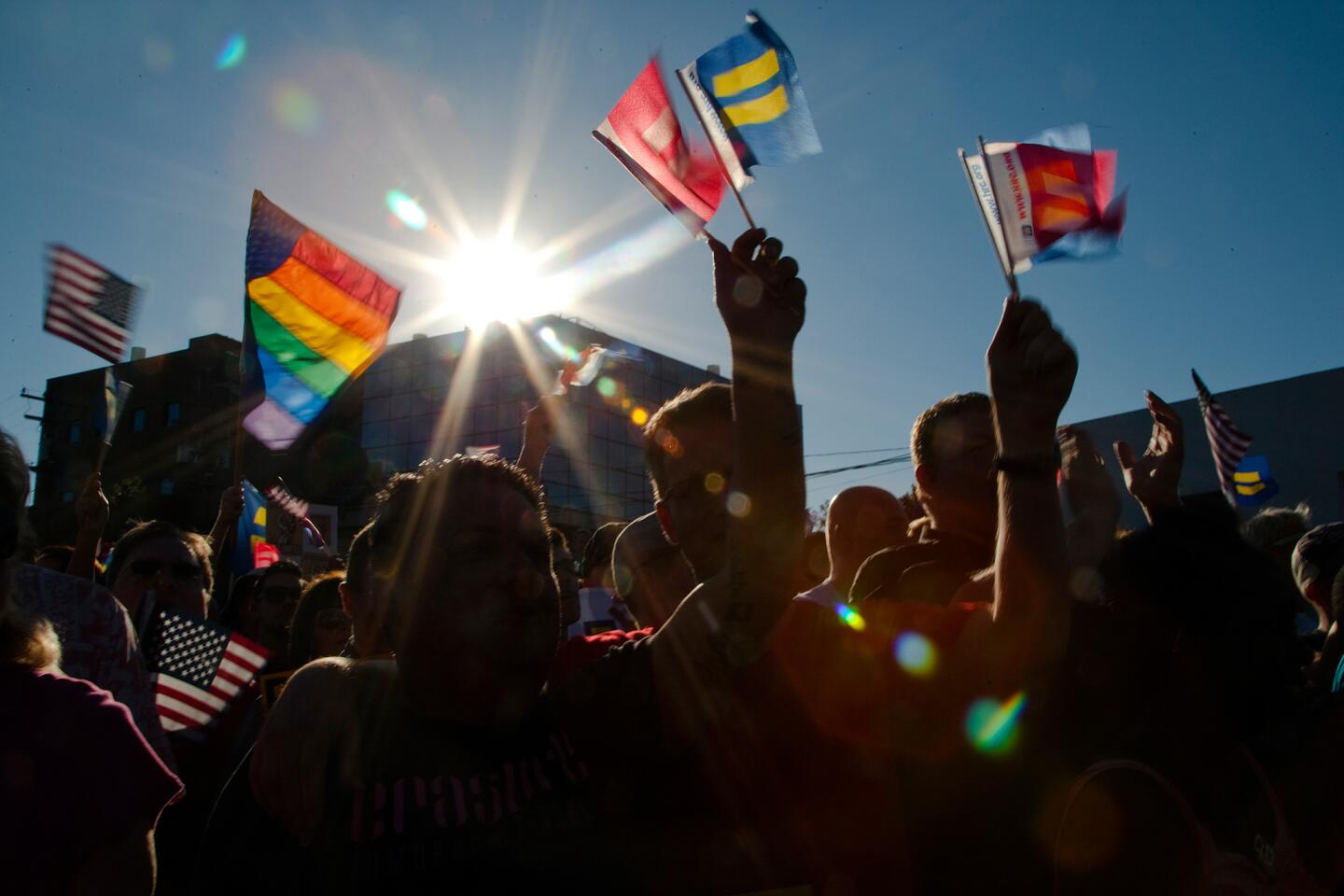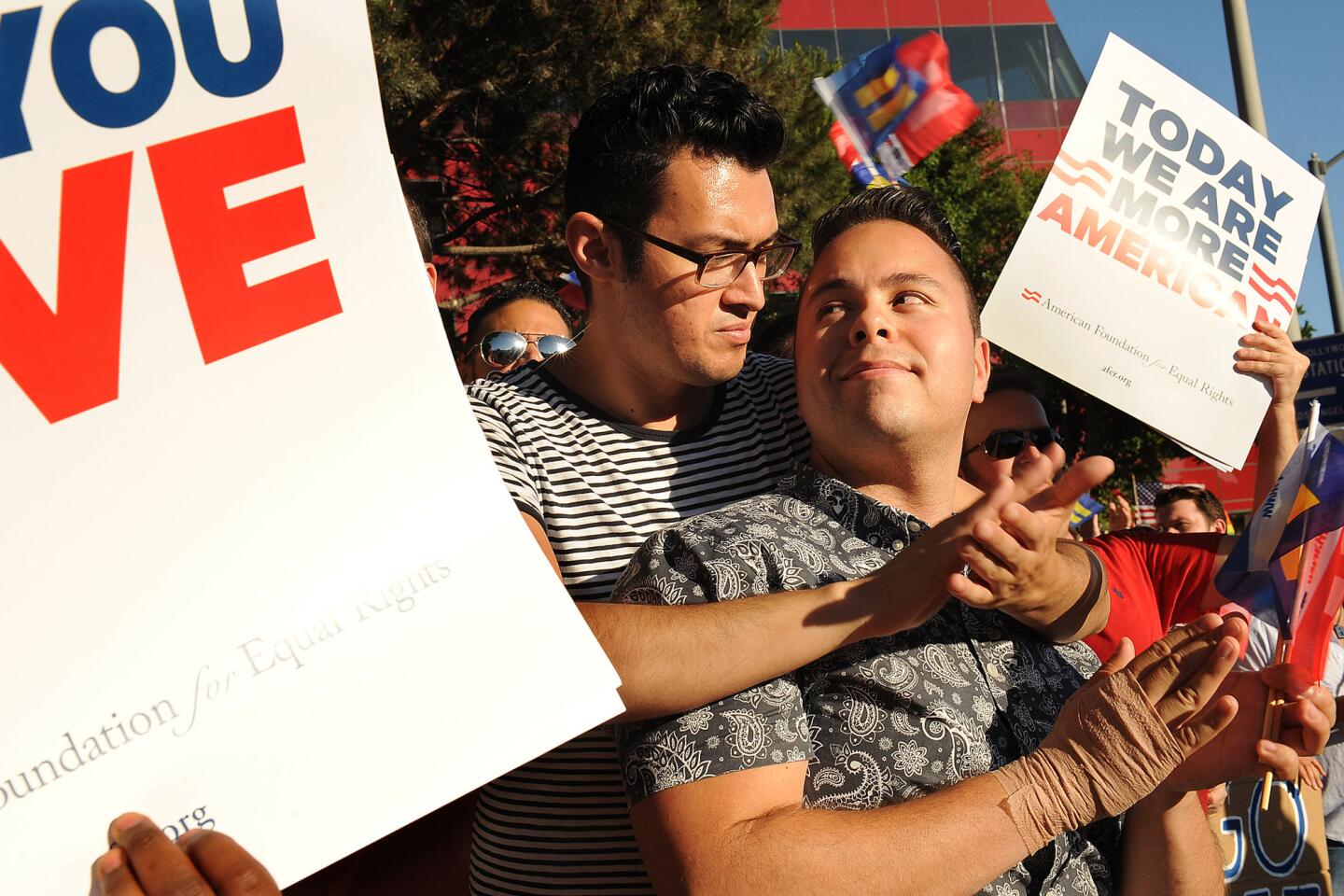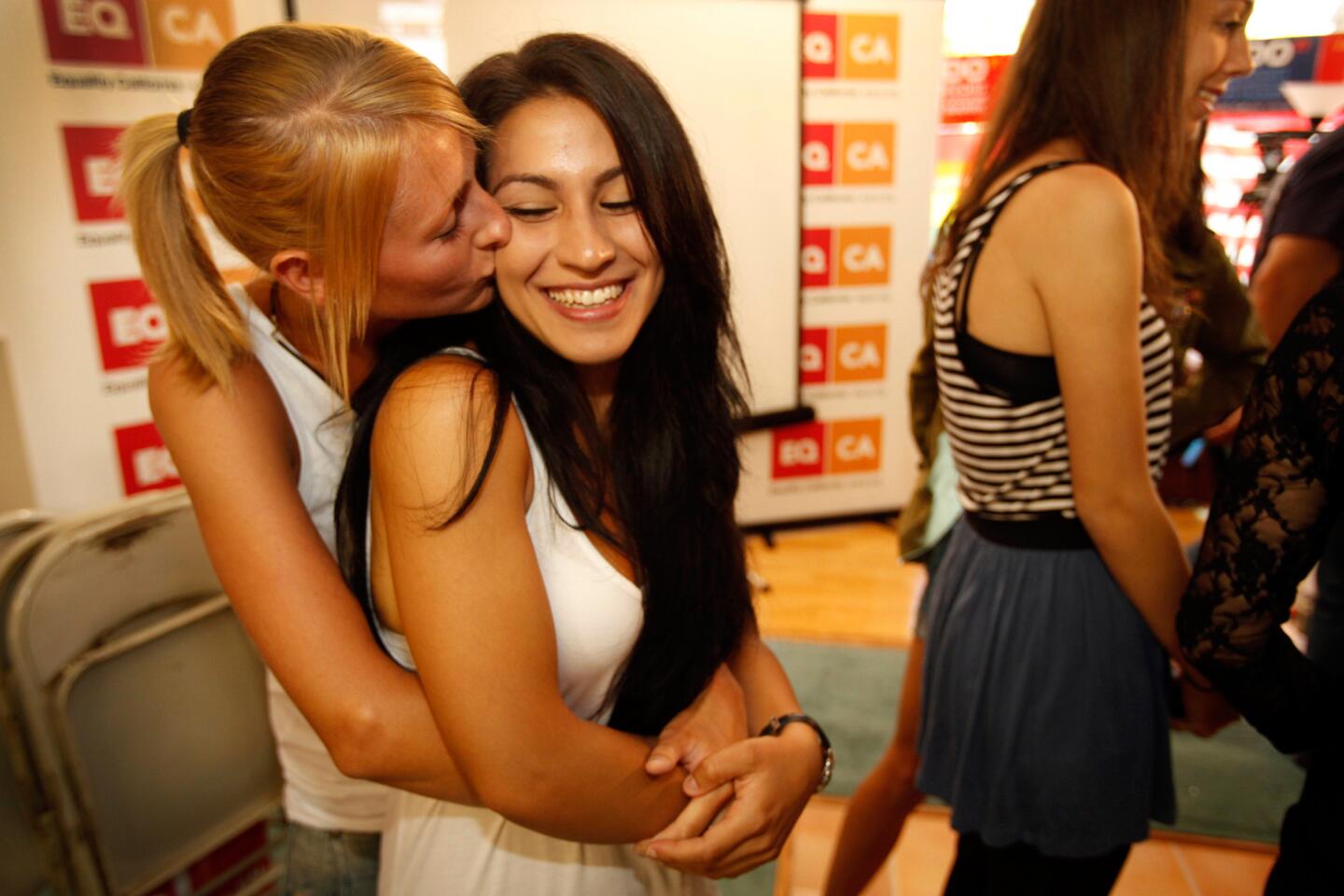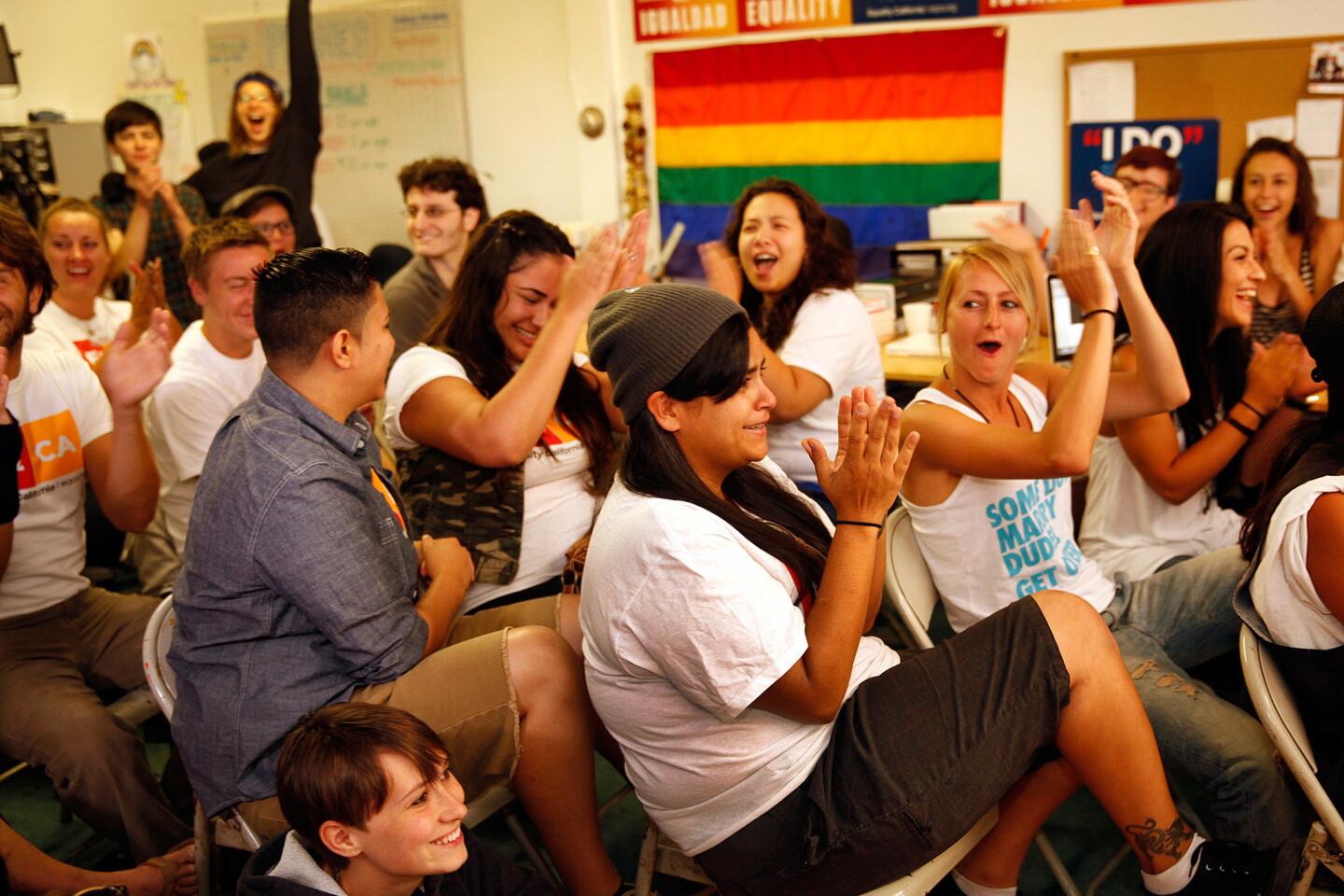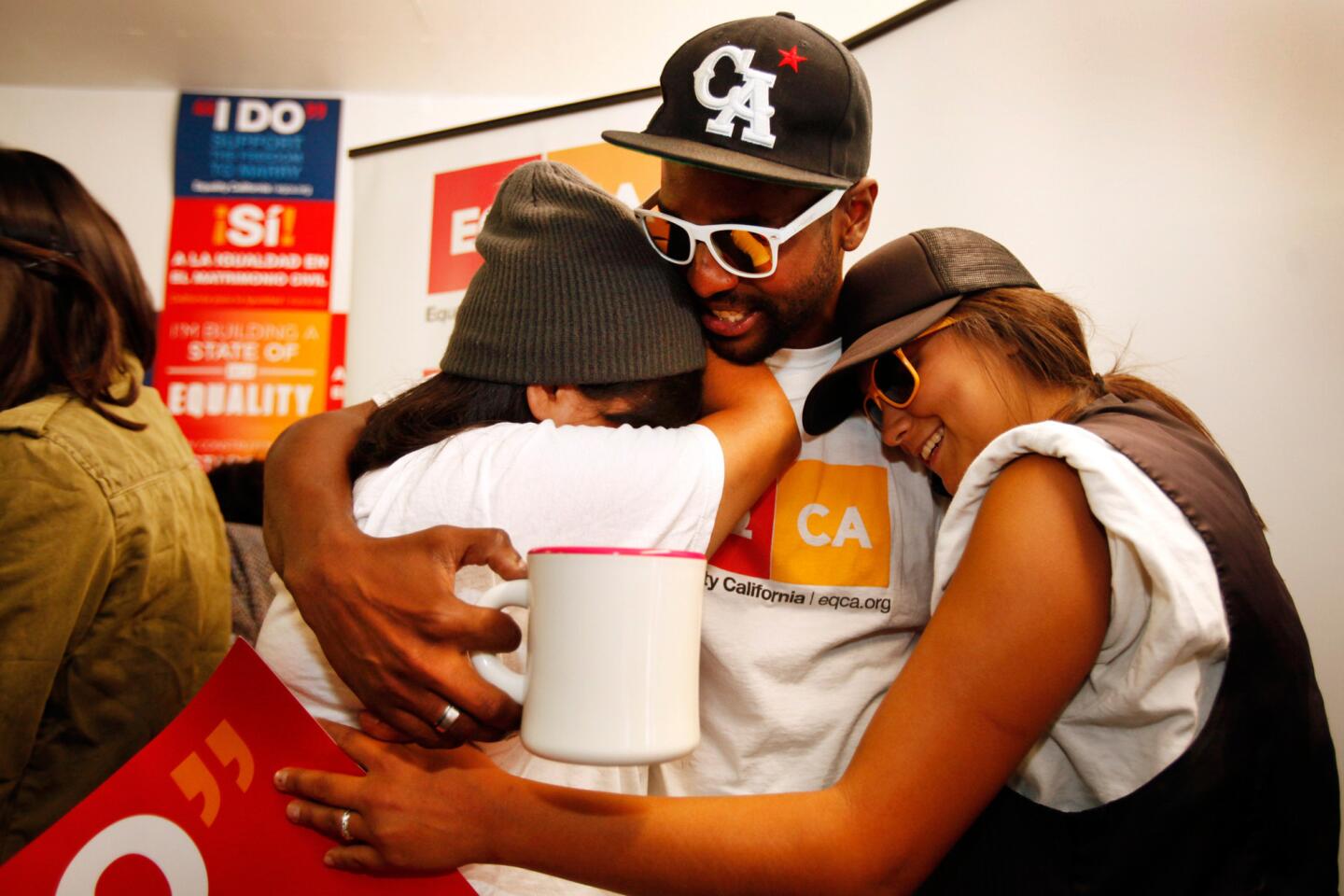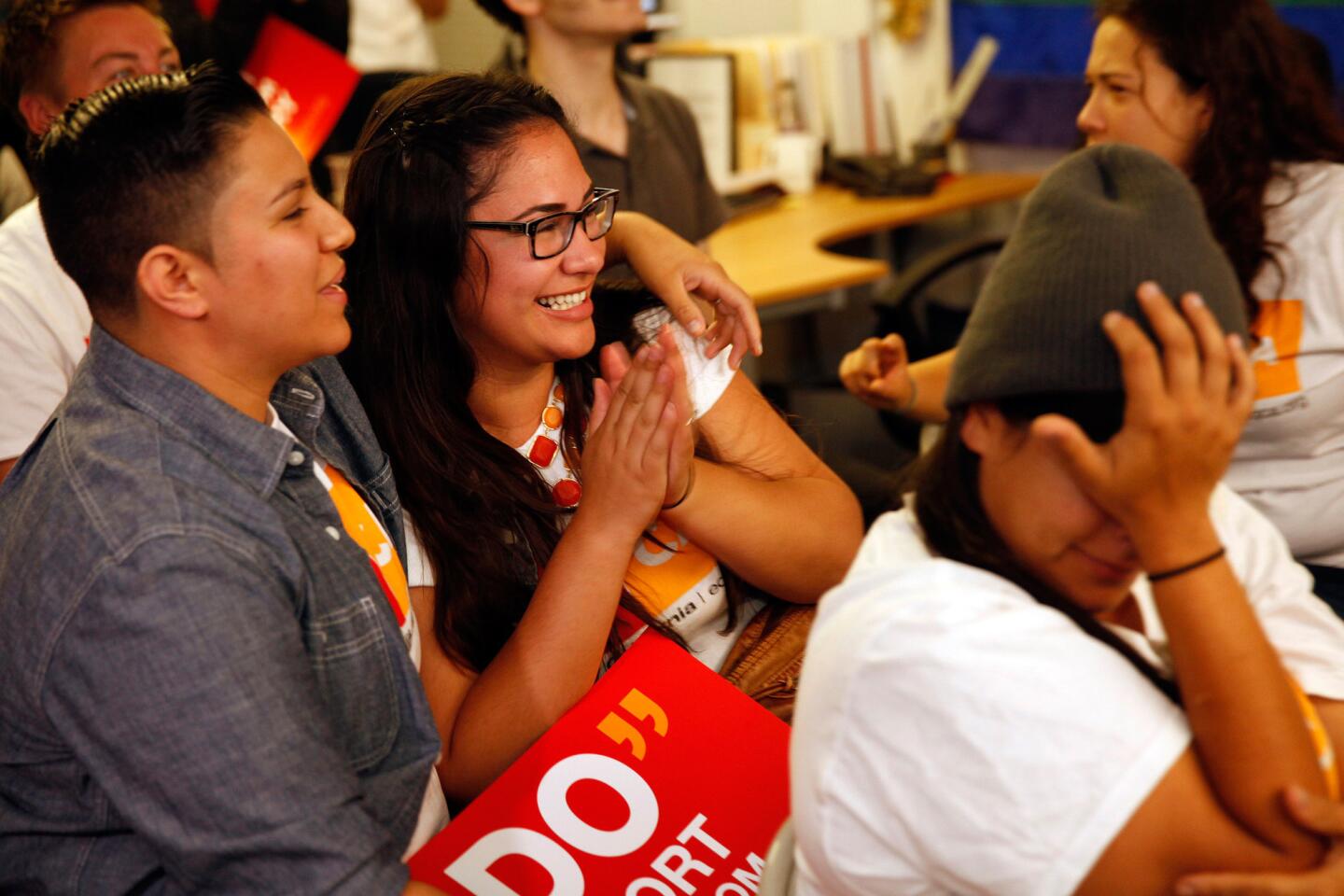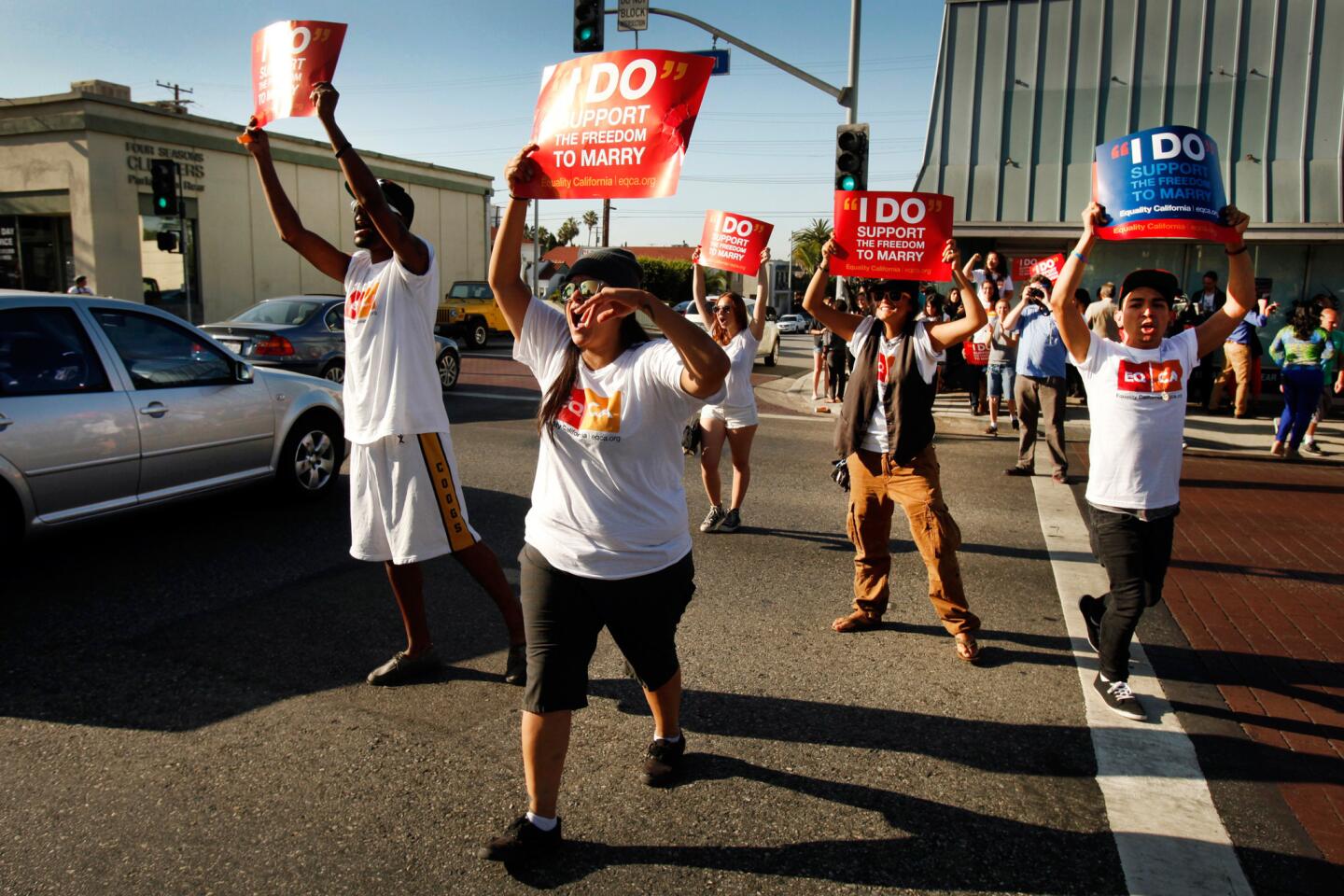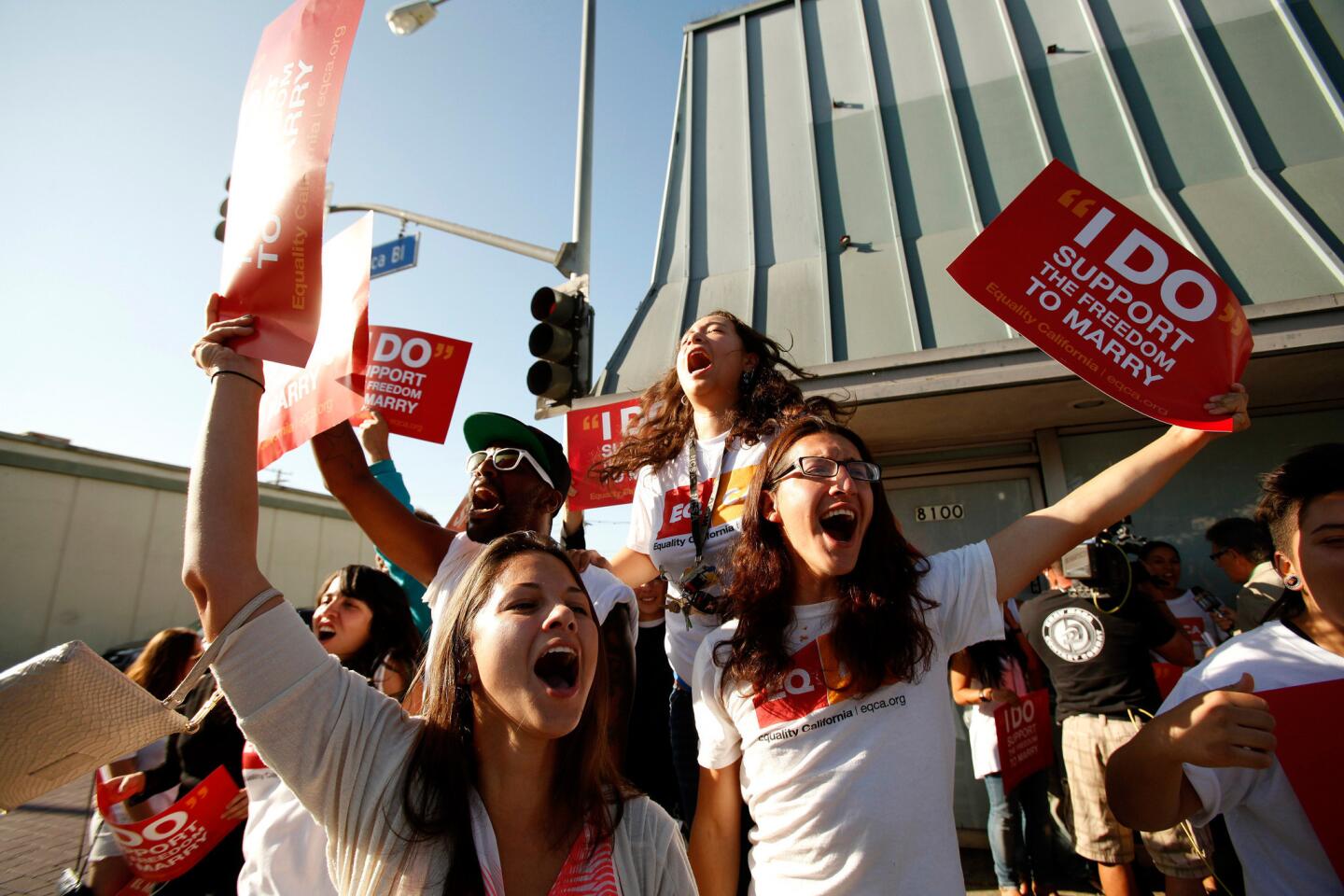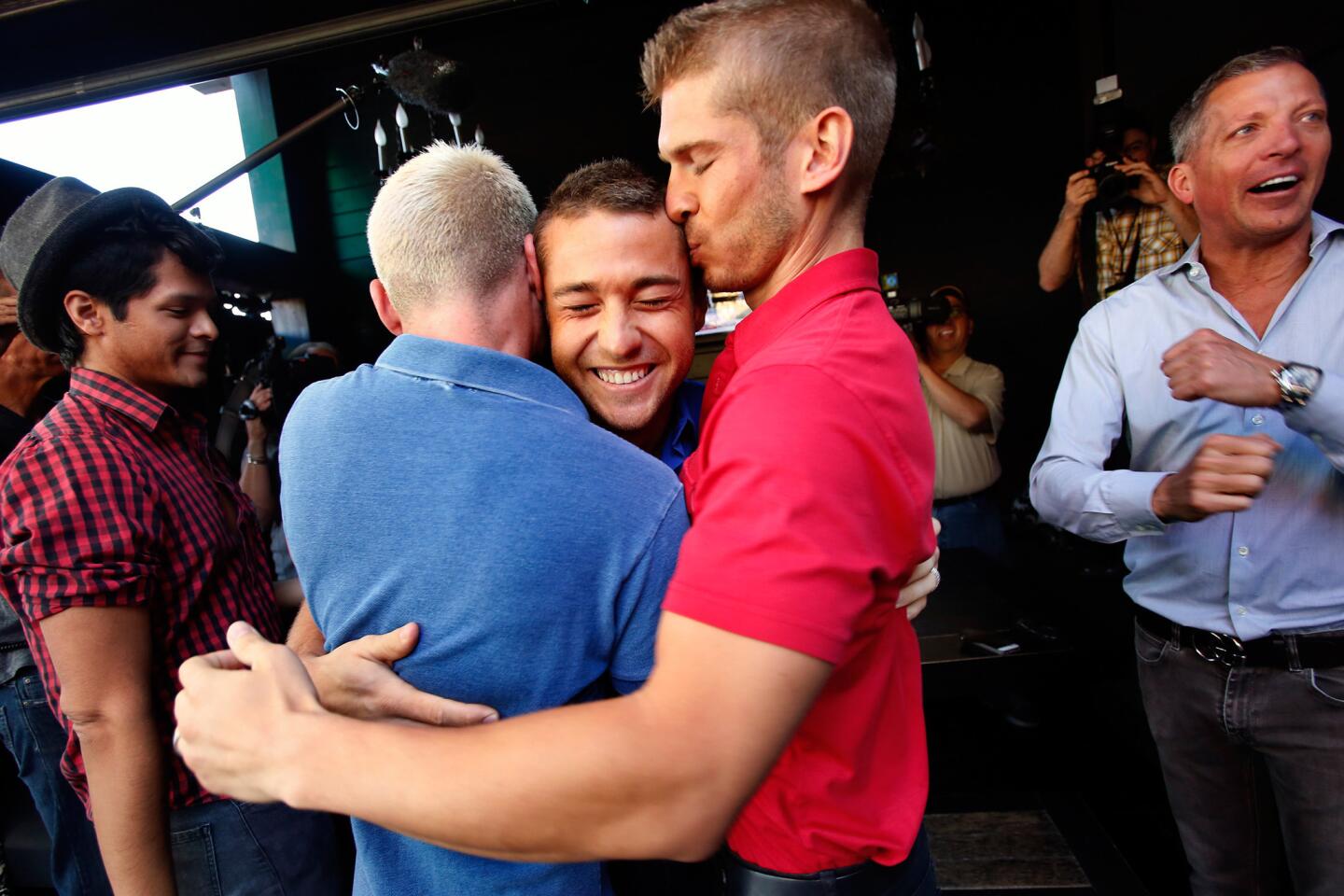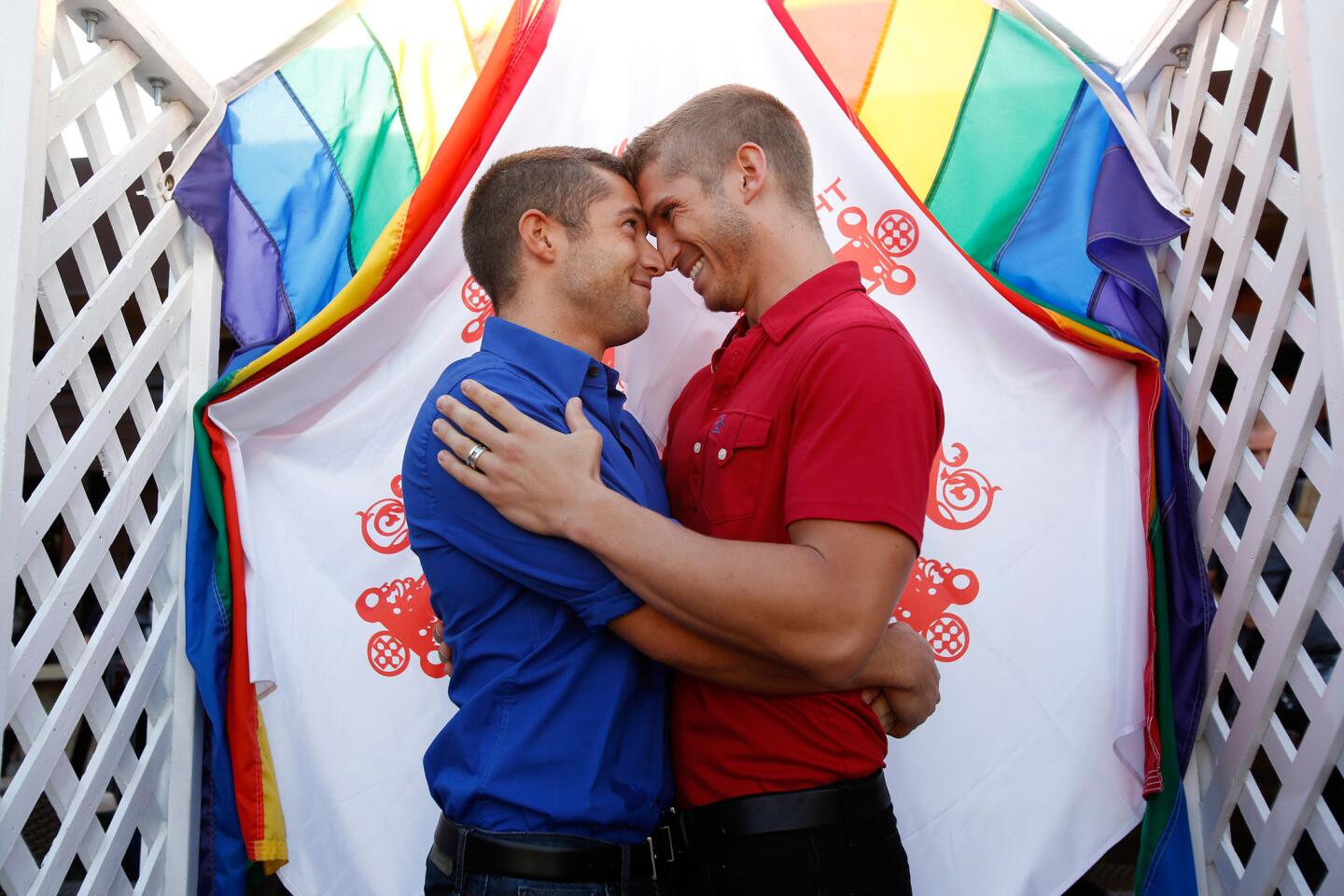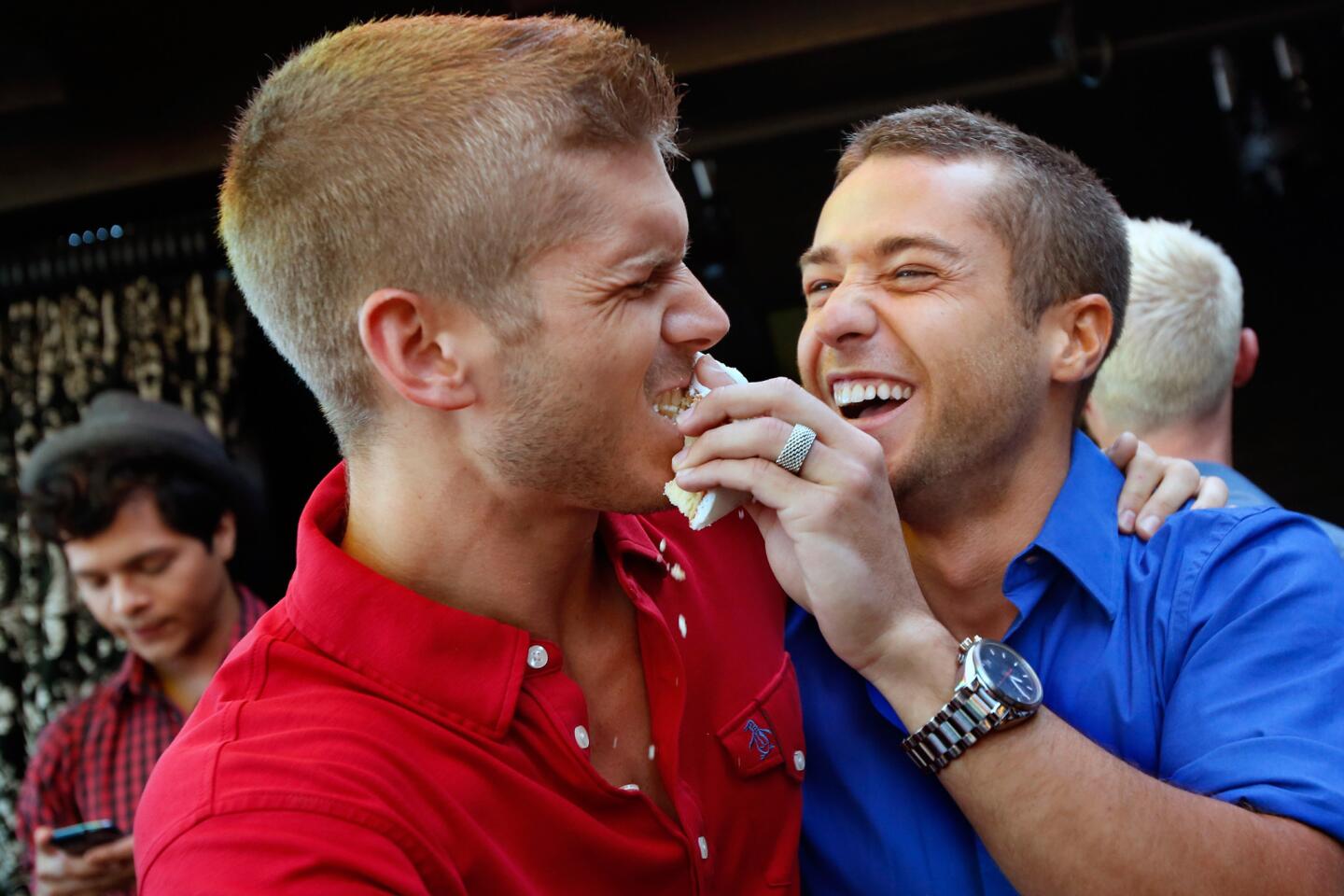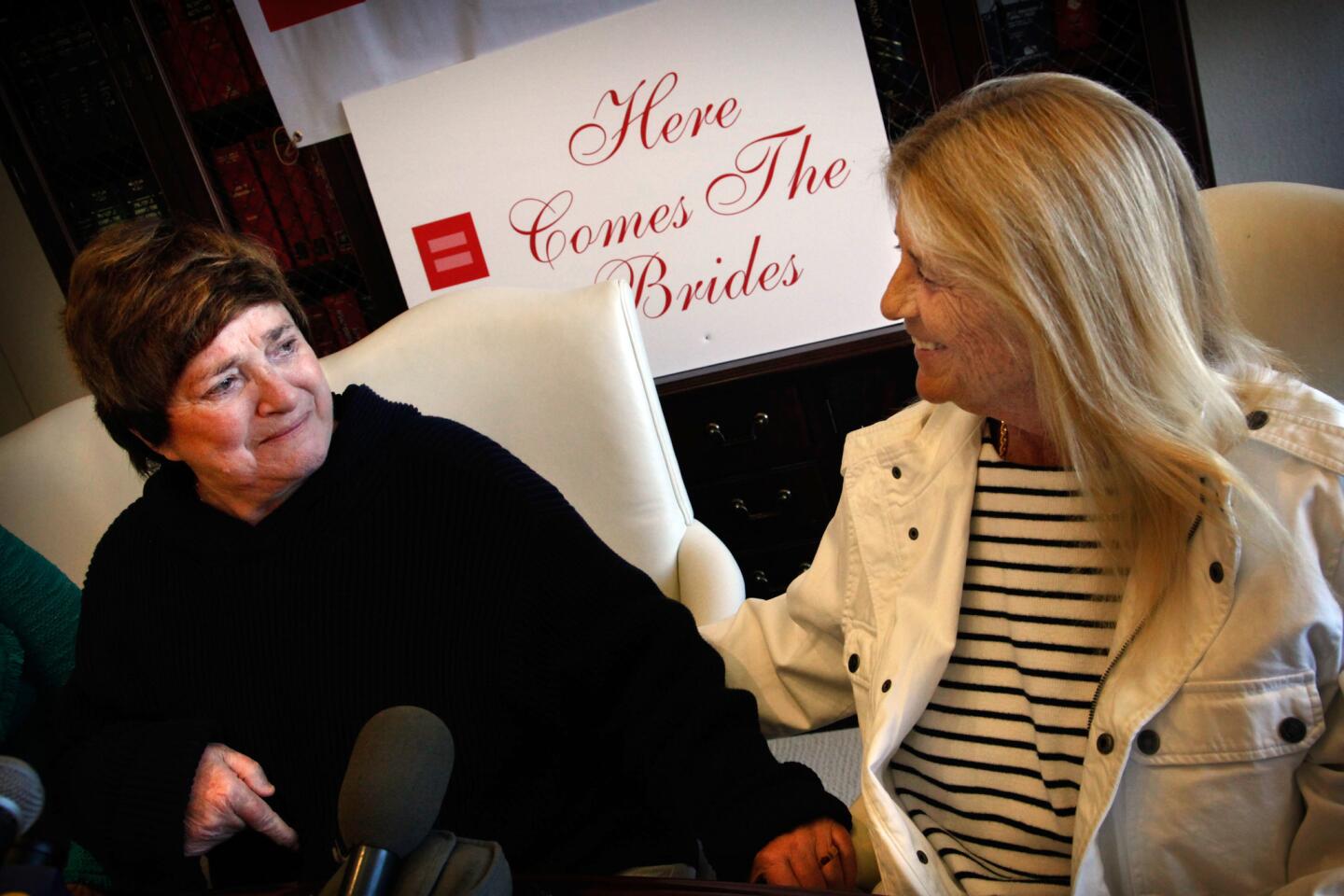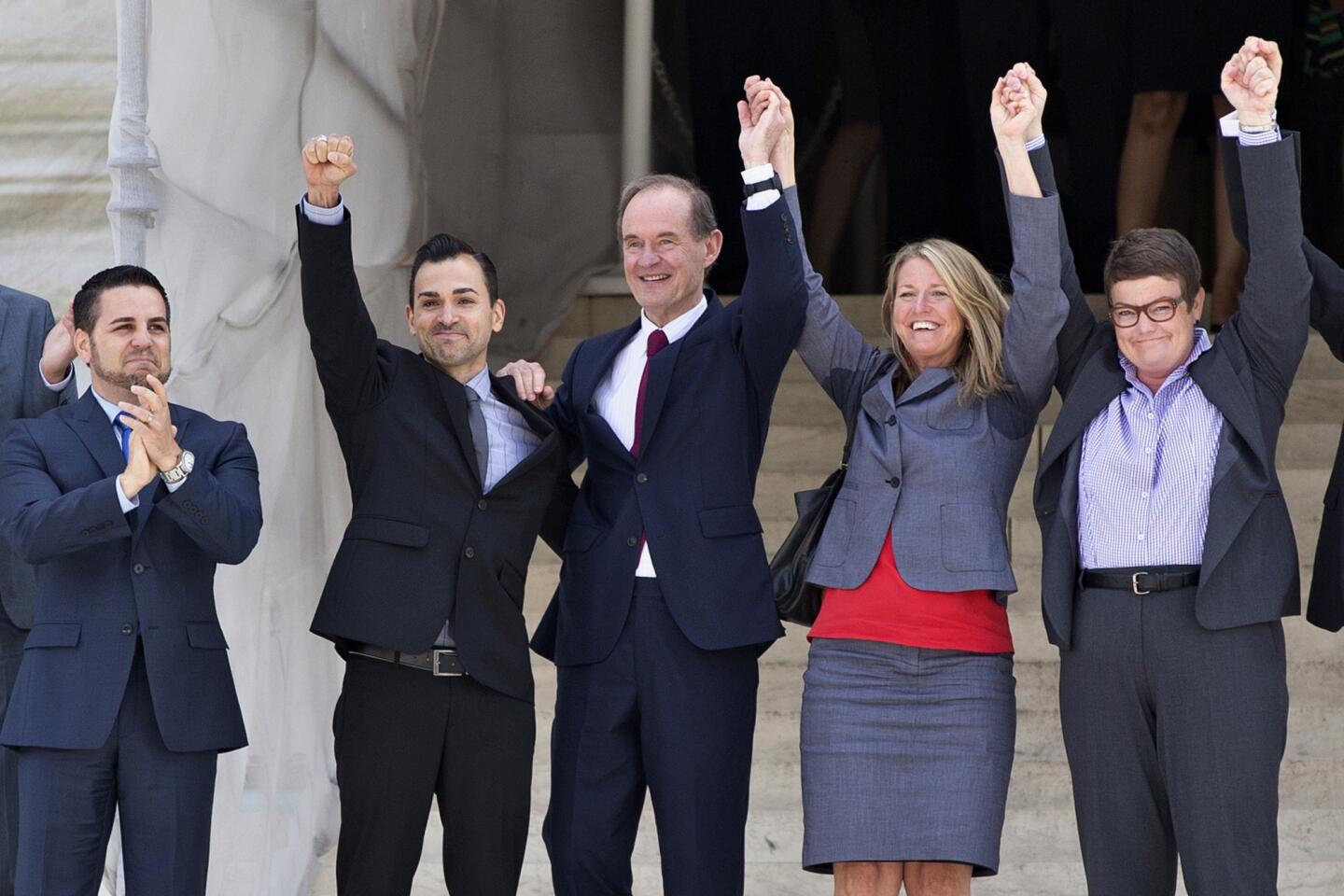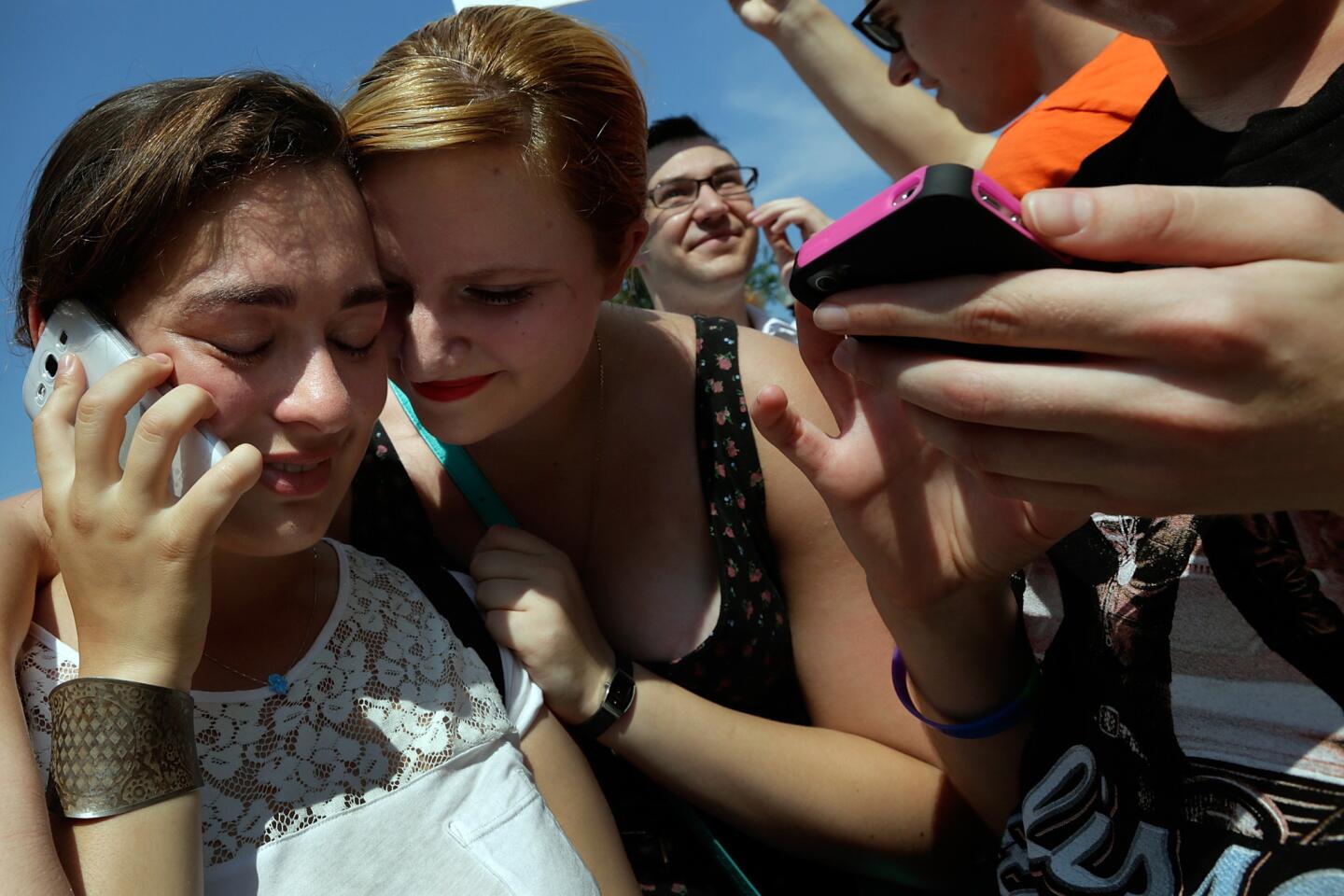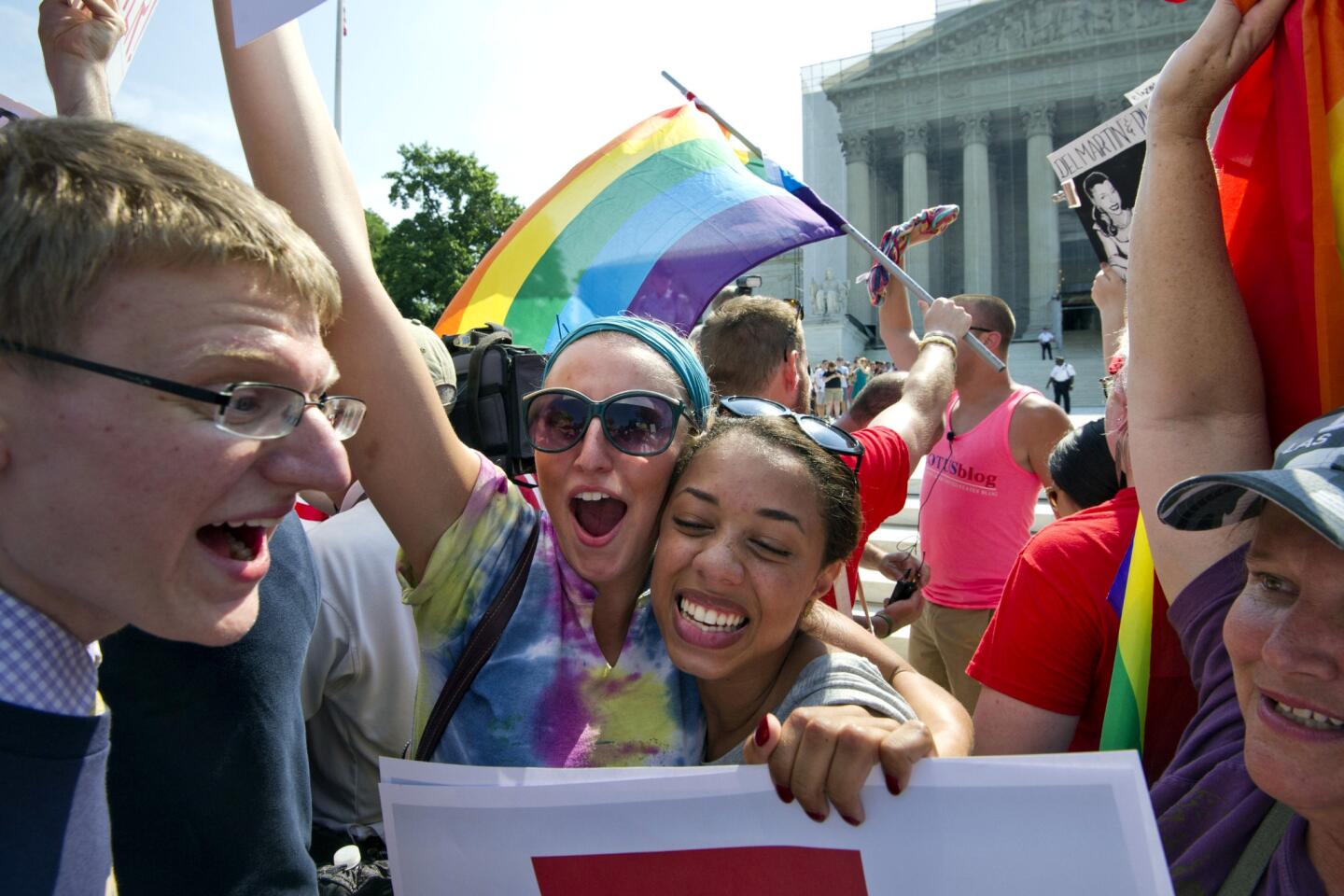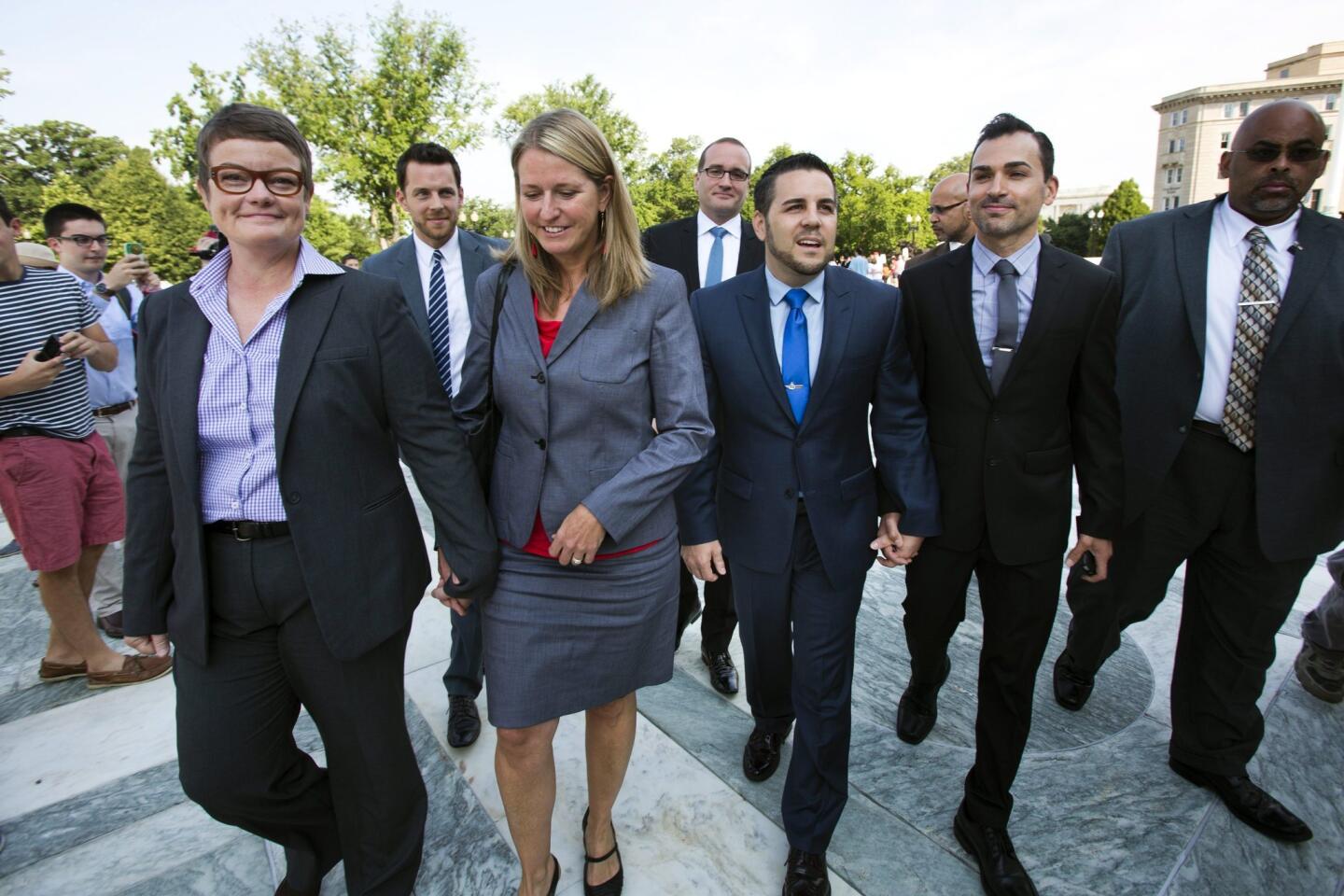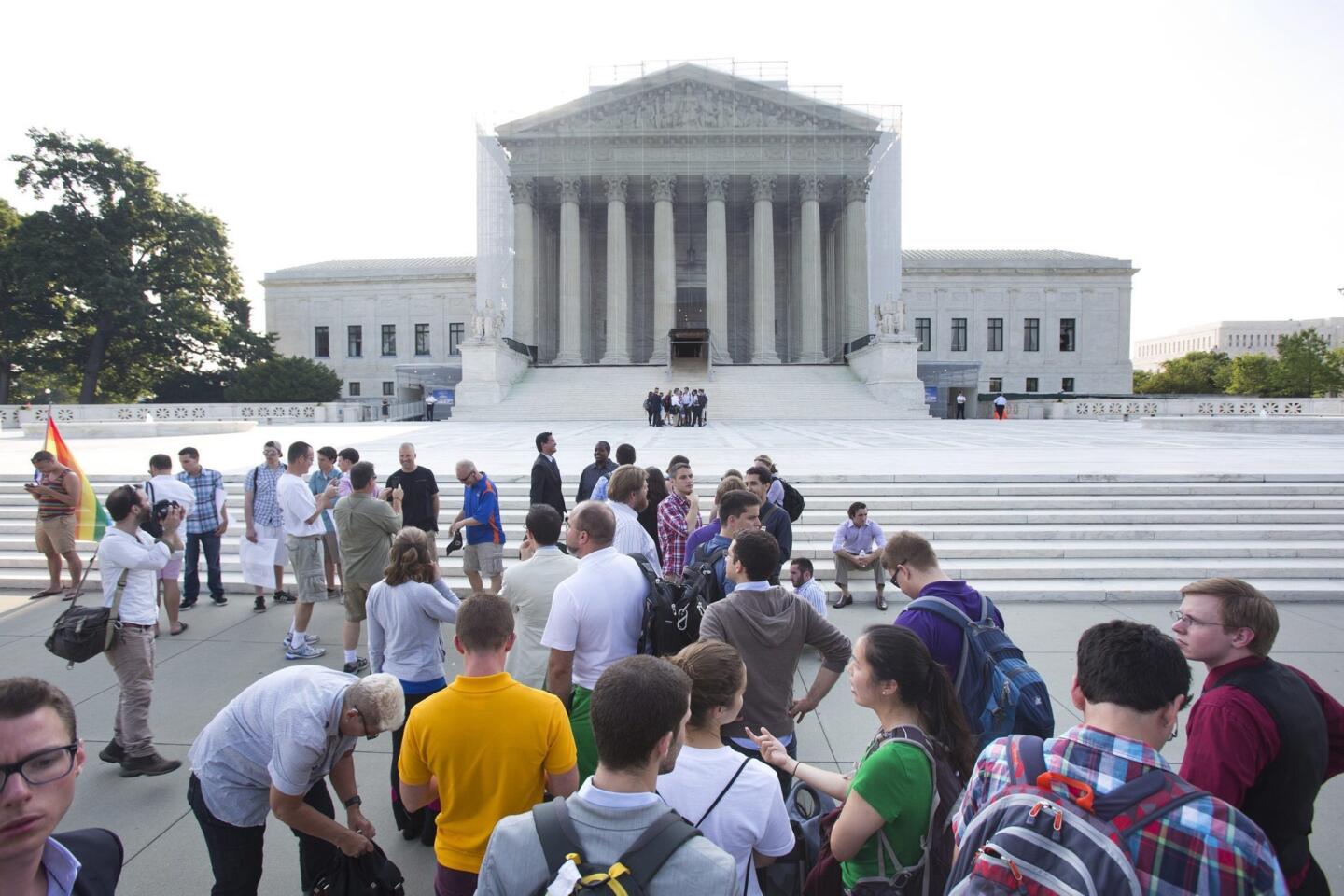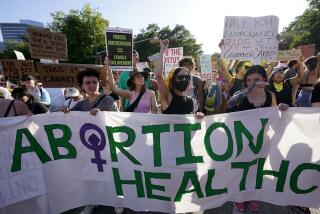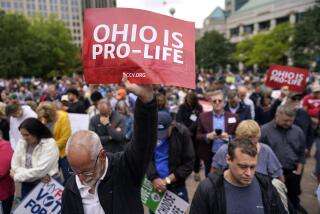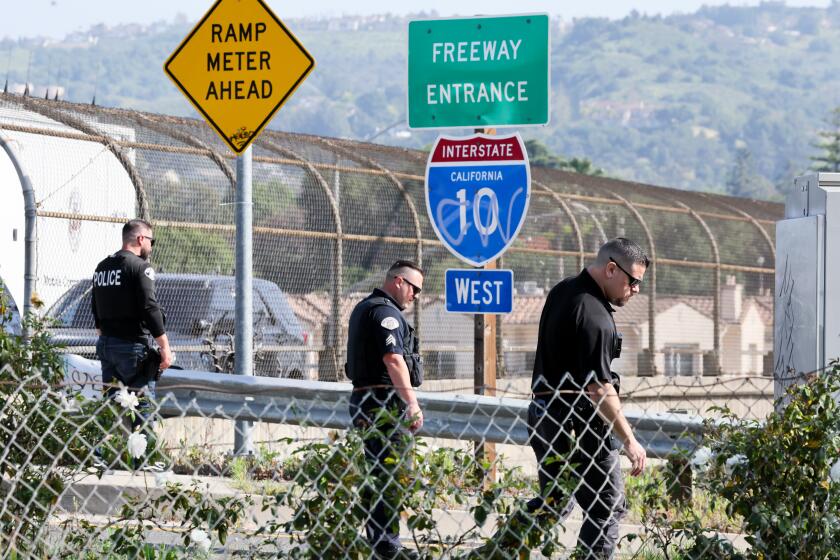Gay marriage Q&A: How soon can we get married? Plus 5 other questions
After the Supreme Court opened the way for gay marriages to resume in California, how soon can gay couples wed? Here are six big questions about what happens next.
When will gay marriages resume in California?
The U.S. Supreme Court’s ruling on Proposition 8 will go into effect in 25 days -- which is Sunday, July 21.
If normal procedures are followed, at that time the 9th Circuit Court of Appeals in San Francisco will be able to lift its stay on the original 2010 decision by U.S. District Judge Vaughn R. Walker declaring Proposition 8 to be unconstitutional.
“The normal process is for this court to wait to be notified of the judgment by the clerk of the Supreme Court. That won’t happen until the 25-day period expires. Once the judgment is received, the panel that decided the case will take action,” David Madden, a 9th Circuit official, told The Times’ Maura Dolan.
At a news conference, California Atty. Gen. Kamala Harris asked for the 9th Circuit to act immediately, before the 25-day period is over.
Gov. Jerry Brown on Wednesday ordered all 58 California counties to begin issuing marriage licenses “as soon as the 9th Circuit confirms the stay is lifted.”
How does the court’s ruling apply to the 37 states that ban gay marriage?
Wednesday’s ruling does not affect the 37 states that ban gay marriage.
It avoided giving a ruling on nationwide grounds because, the court majority argued, the supporters of Proposition 8 did not have the legal standing to appeal the case to the 9th Circuit Court of Appeals or the Supreme Court. The court majority said the Proposition 8 sponsors did not suffer injury as a result of the original 2010 ruling striking down the ballot measure.
But the court’s ruling will not end the debate in those states.
Backers of same-sex marriage declared a new goal: a five-year campaign to strike down the laws in the remaining states that prohibit such unions.
As The Times’ David G. Savage writes, although there was no nationwide ruling, even Justice Antonin Scalia, in dissent, said the court’s opinions will be read by judges across the nation as suggesting that bans on gay marriage are unconstitutional.
What does the Supreme Court’s ruling on the Defense of Marriage Act mean?
The ruling will bring federal recognition to more than 100,000 gays and lesbians who were legally married. The justices by a 5-4 vote said the federal law denying benefits to gay married couples was unconstitutional because it denied them equal protection of the laws.
Could the Supreme Court, in the future, rule on whether there is a federal constitutional right for same-sex marriage?
Yes, the Supreme Court could rule in the future if there’s a federal constitutional right to same-sex marriage. Unlike California, where Brown and Harris refused to defend Proposition 8 in federal court, there are other states whose elected officials will defend bans on gay marriage. That could set up a showdown at the Supreme Court once again.
What are backers of same-sex marriage saying after the court decision?
Backers of same-sex marriage declared a new goal Wednesday -- a five-year campaign to strike down the laws in the remaining states that prohibit such unions.
As The Times’ David Lauter writes, first, the campaign will unfold in legislatures and ballot initiatives. Gay-rights groups hope that if enough states adopt laws allowing same-sex marriages, the Supreme Court will be willing to overturn the remaining statutes, much as it did in 1967 when it struck down laws that banned interracial marriages.
What do opponents of gay marriage say is their next step?
Some gay marriage foes said they will fight on.
“This is far from over, I can tell you,” said Chapman University law professor John Eastman, who supports the same-sex marriage ban.
Nationally, opponents of same-sex marriage will try to fight state by state and argue that the issue should be settled locally.
In California, Eastman said the supporters of Proposition 8 could challenge the scope of Walker’s order in federal district court or in state court under a provision of the California Constitution that prevents state officers from refusing to follow laws without an order from an appeals court.
But Santa Clara University law professor Gerald Uelmen, an expert on the state constitution, said the provision cited by Eastman does not apply to constitutional amendments such as Proposition 8. “I think they would be laughed out of state court,” Uelmen said.
More questions on gay marriage? Tweet @ronlin, leave a comment, or email us at ron.lin@latimes.com and we’ll try to answer.
ALSO:
Gay marriage to resume in California within weeks
County clerks say they’re ready for Proposition 8 ruling
Twitter: @ronlin | Facebook | Google+
More to Read
Start your day right
Sign up for Essential California for news, features and recommendations from the L.A. Times and beyond in your inbox six days a week.
You may occasionally receive promotional content from the Los Angeles Times.
